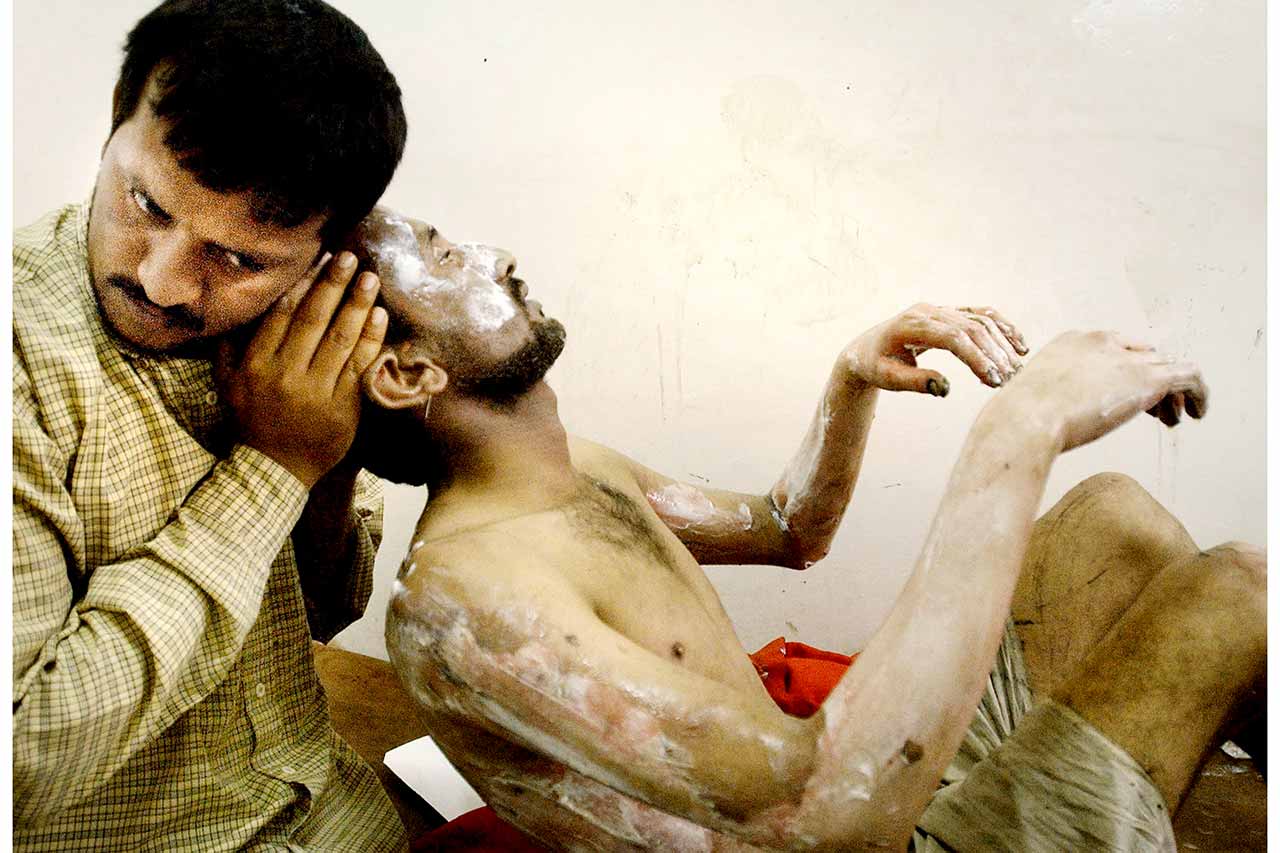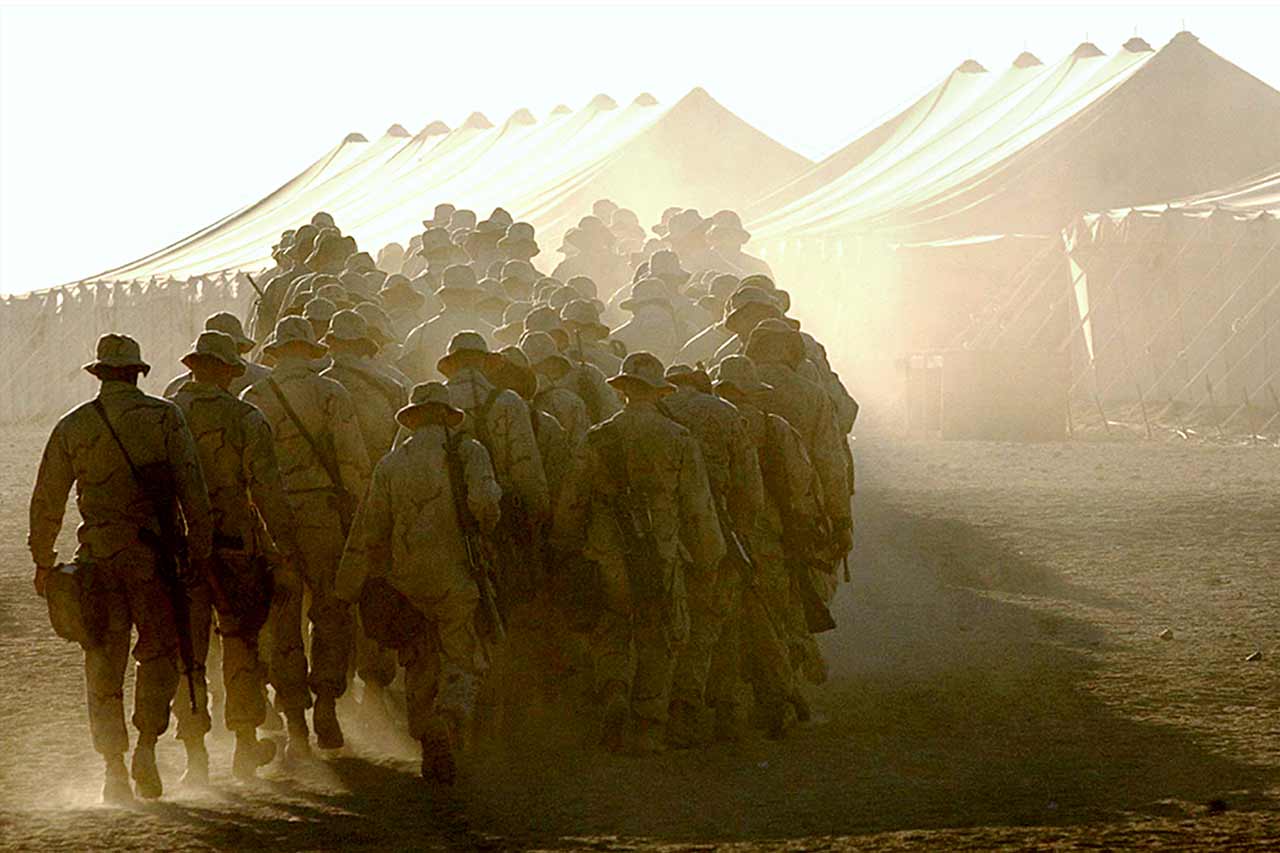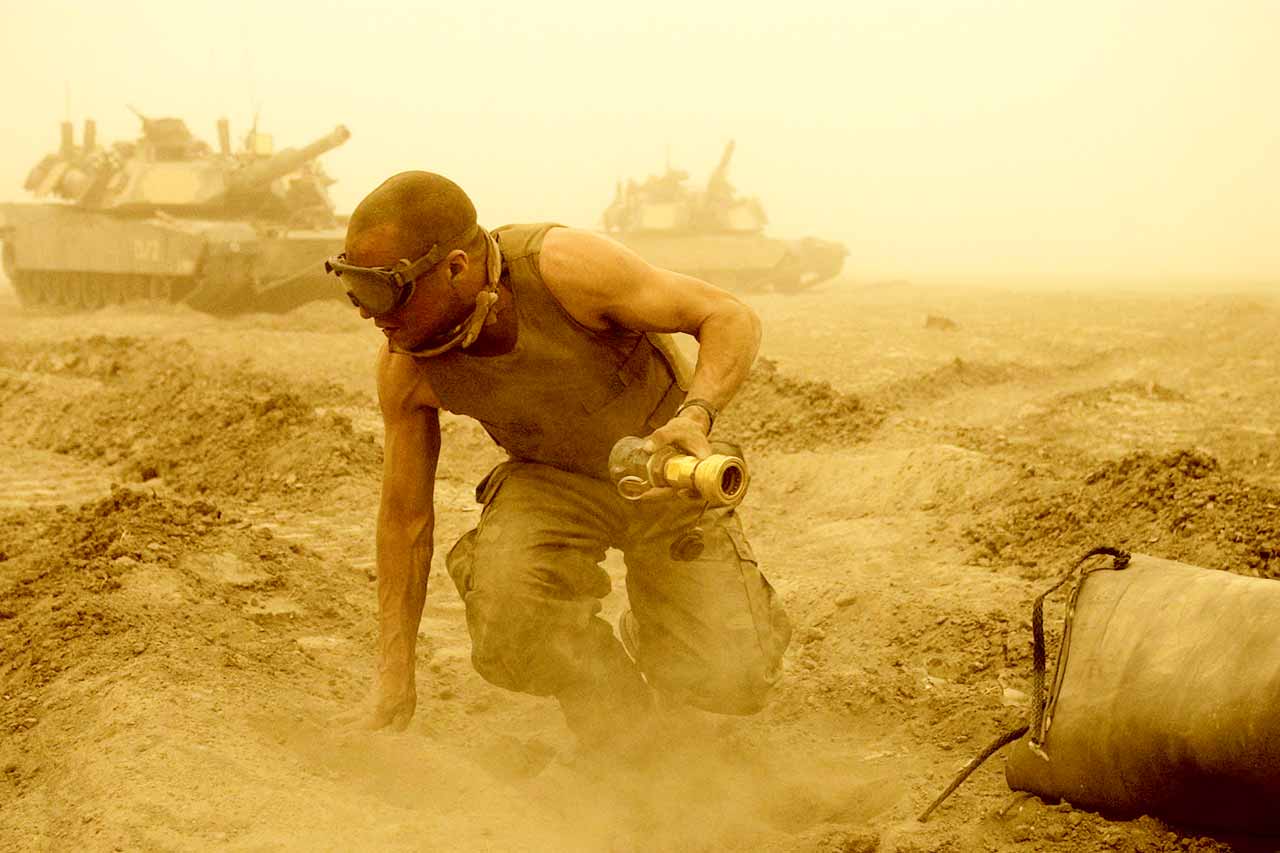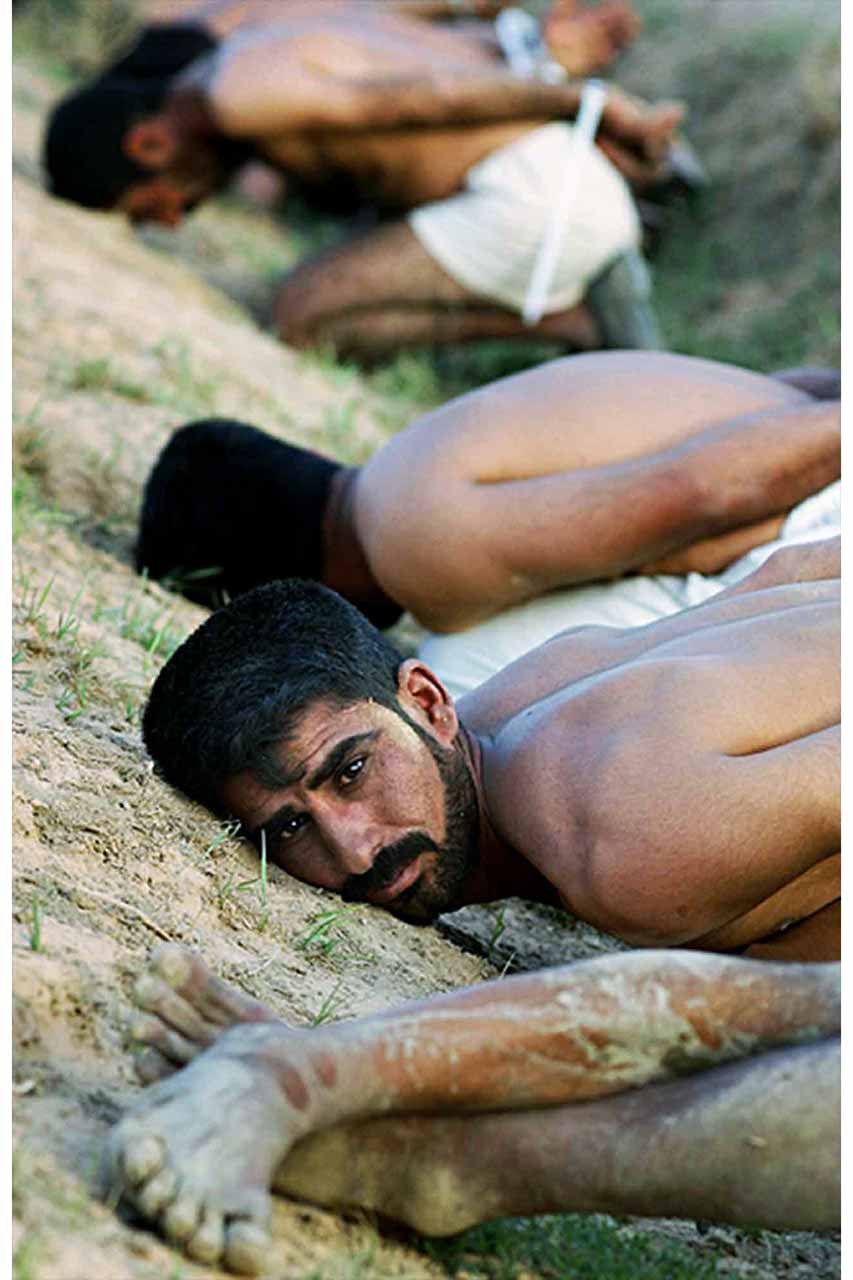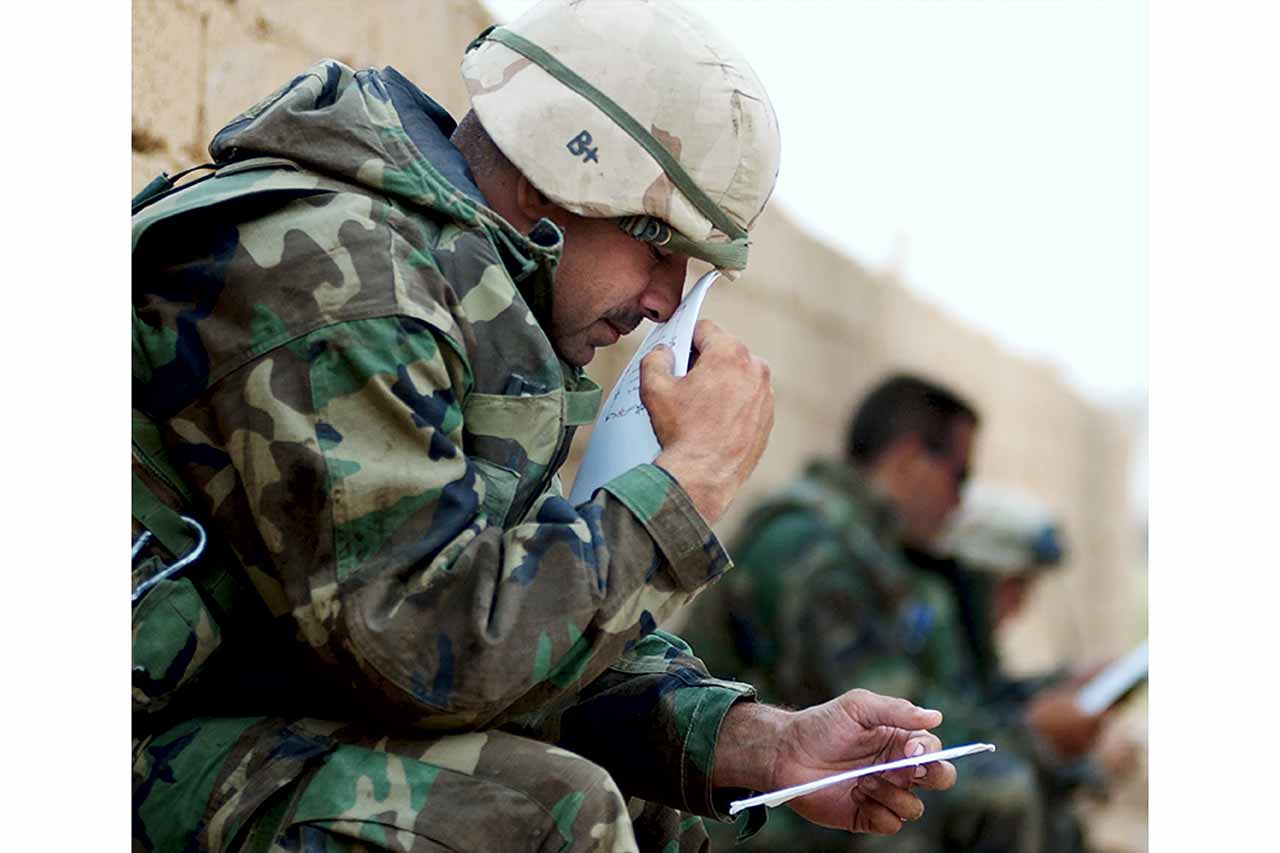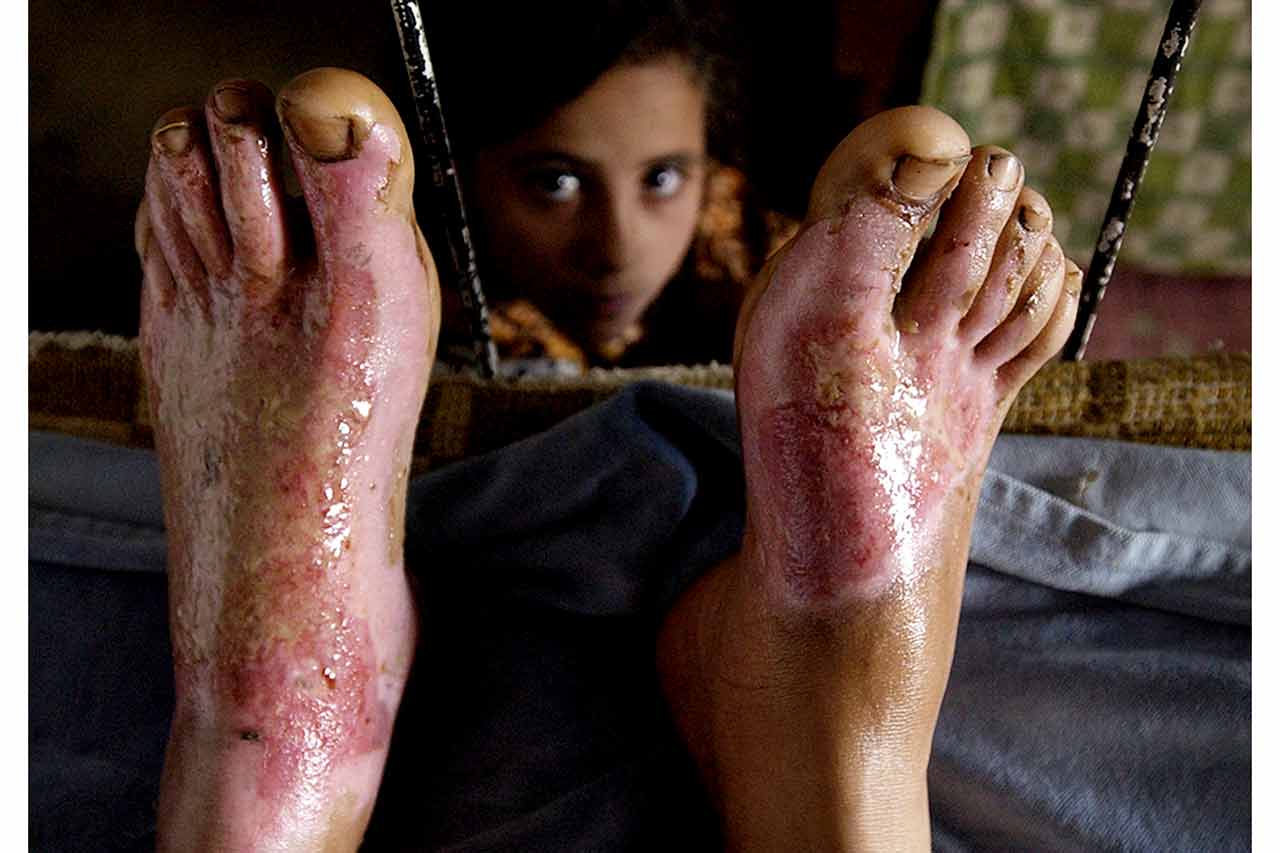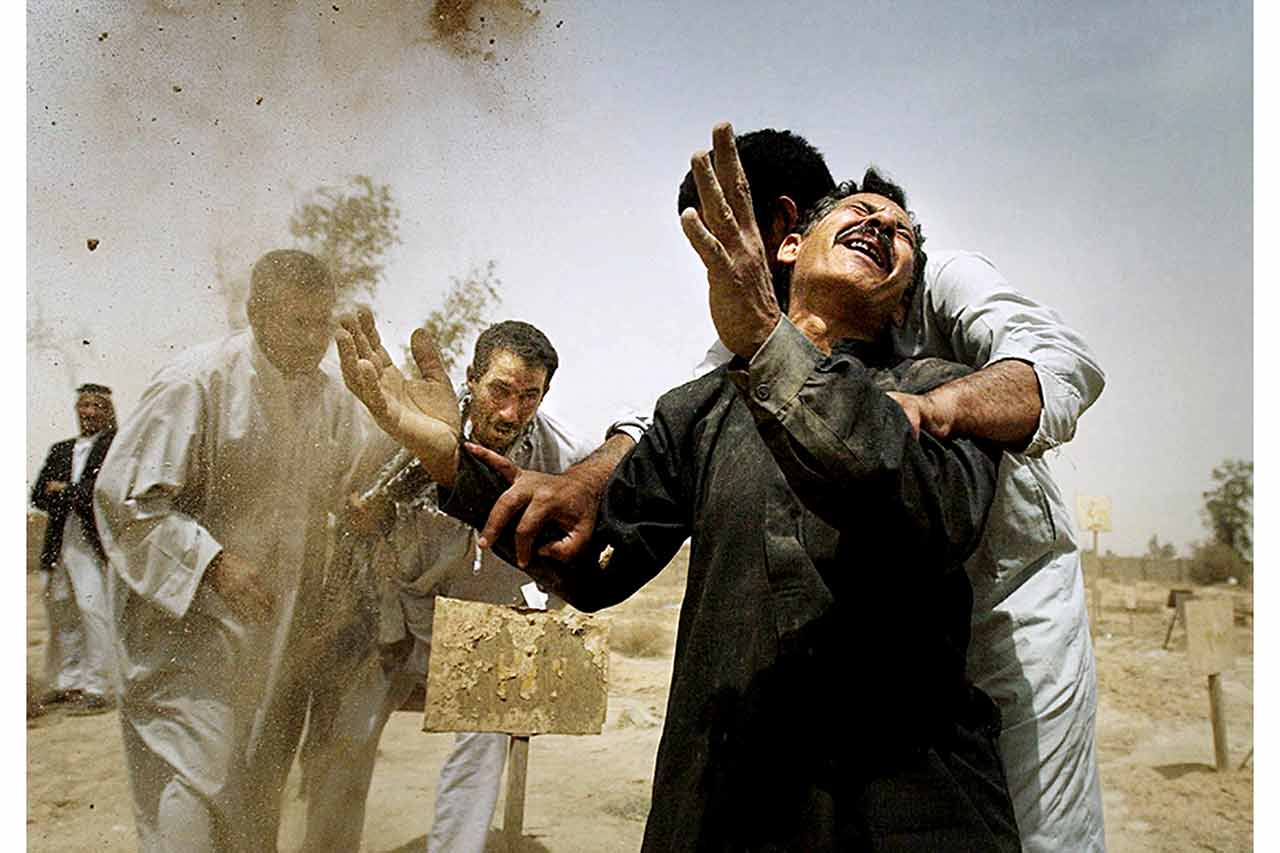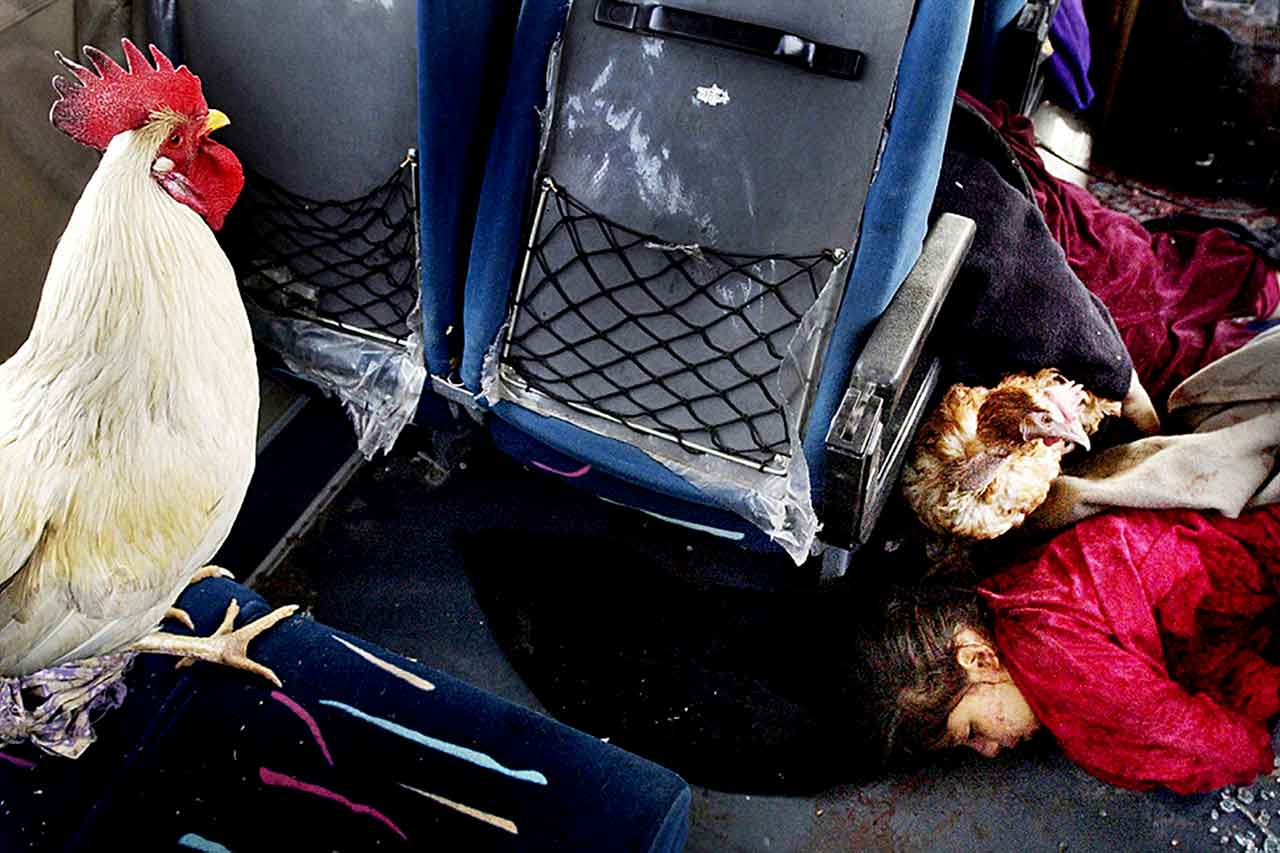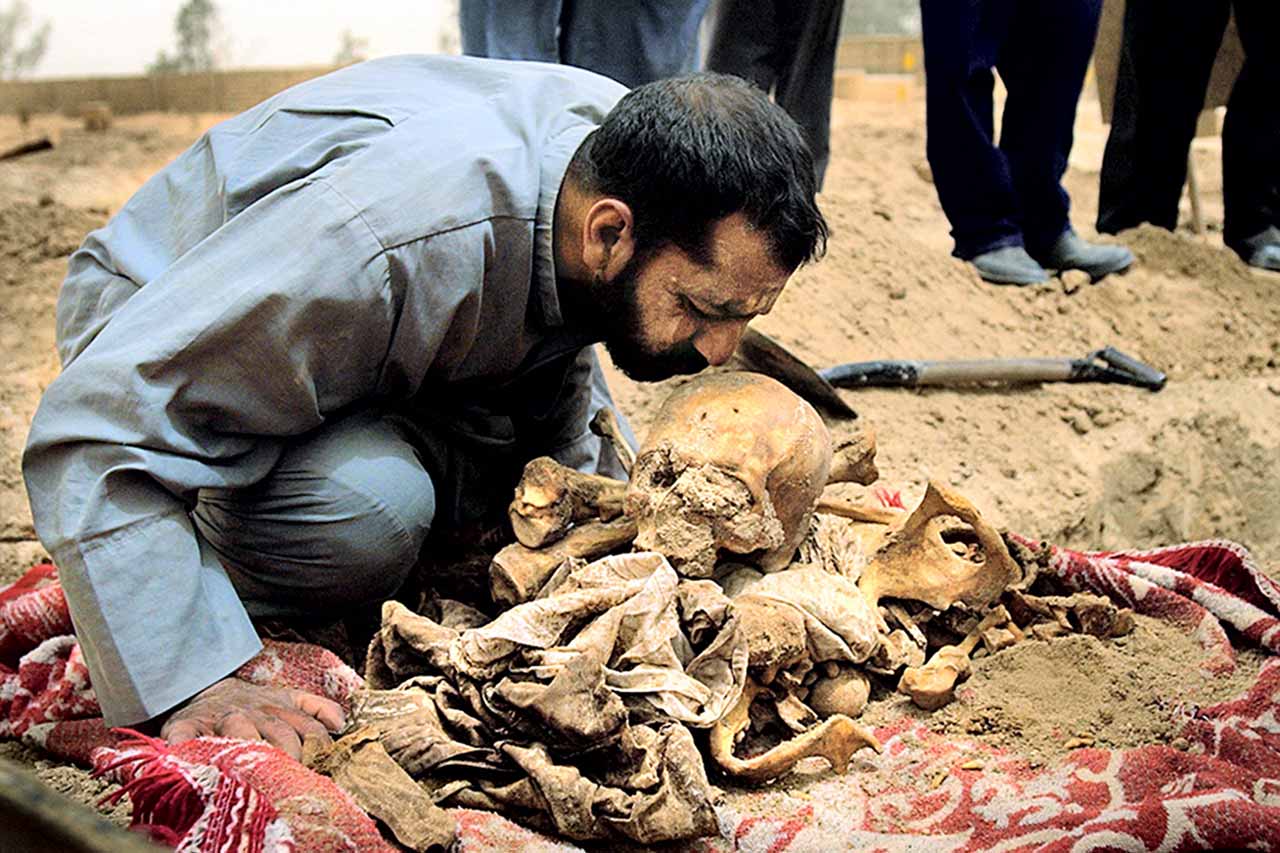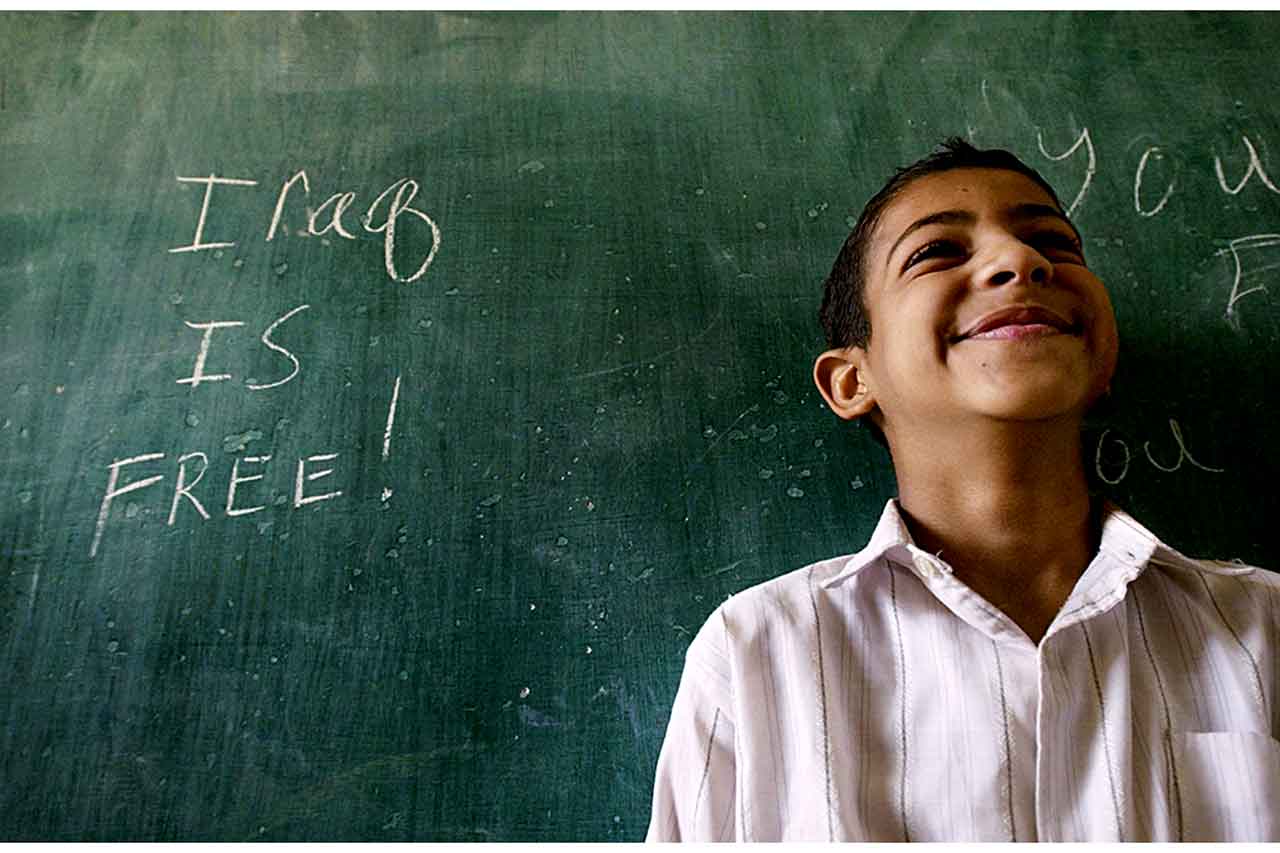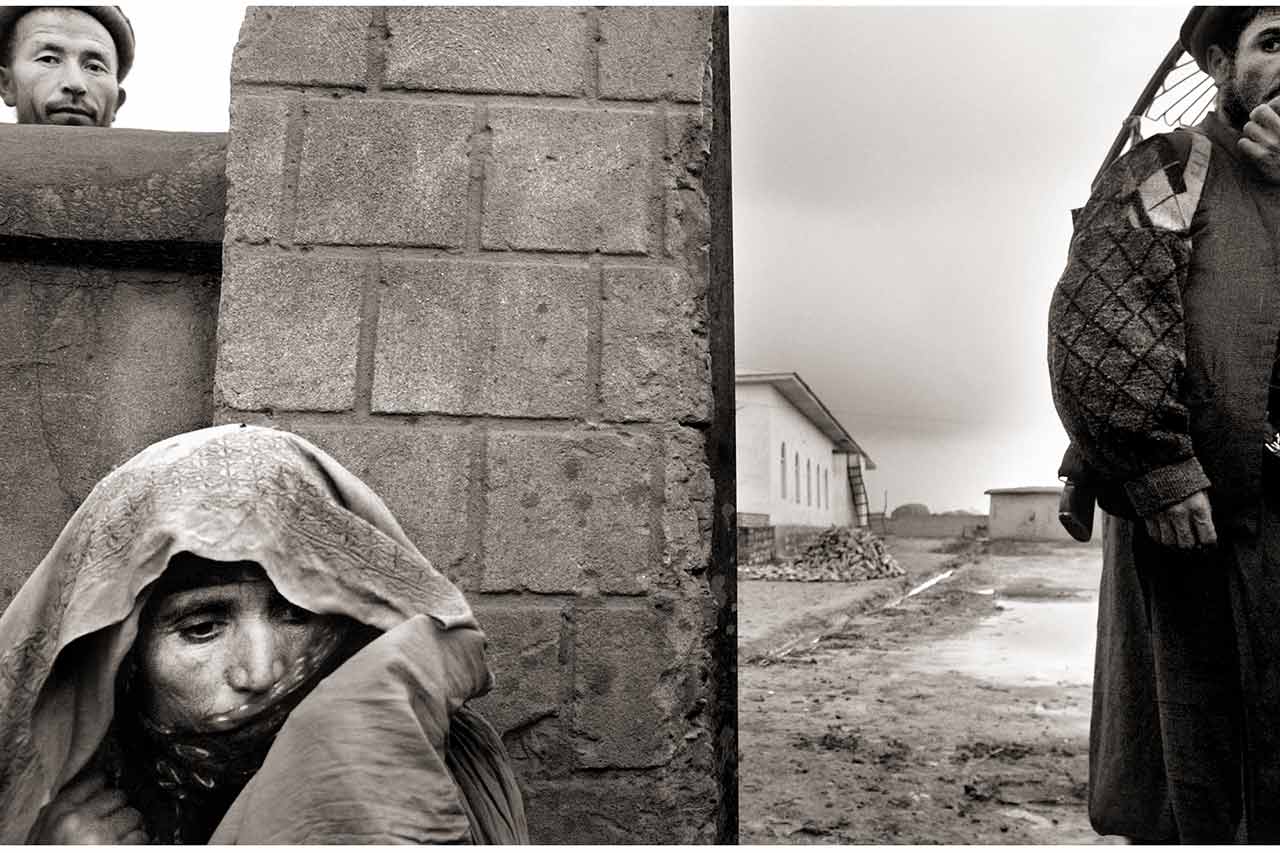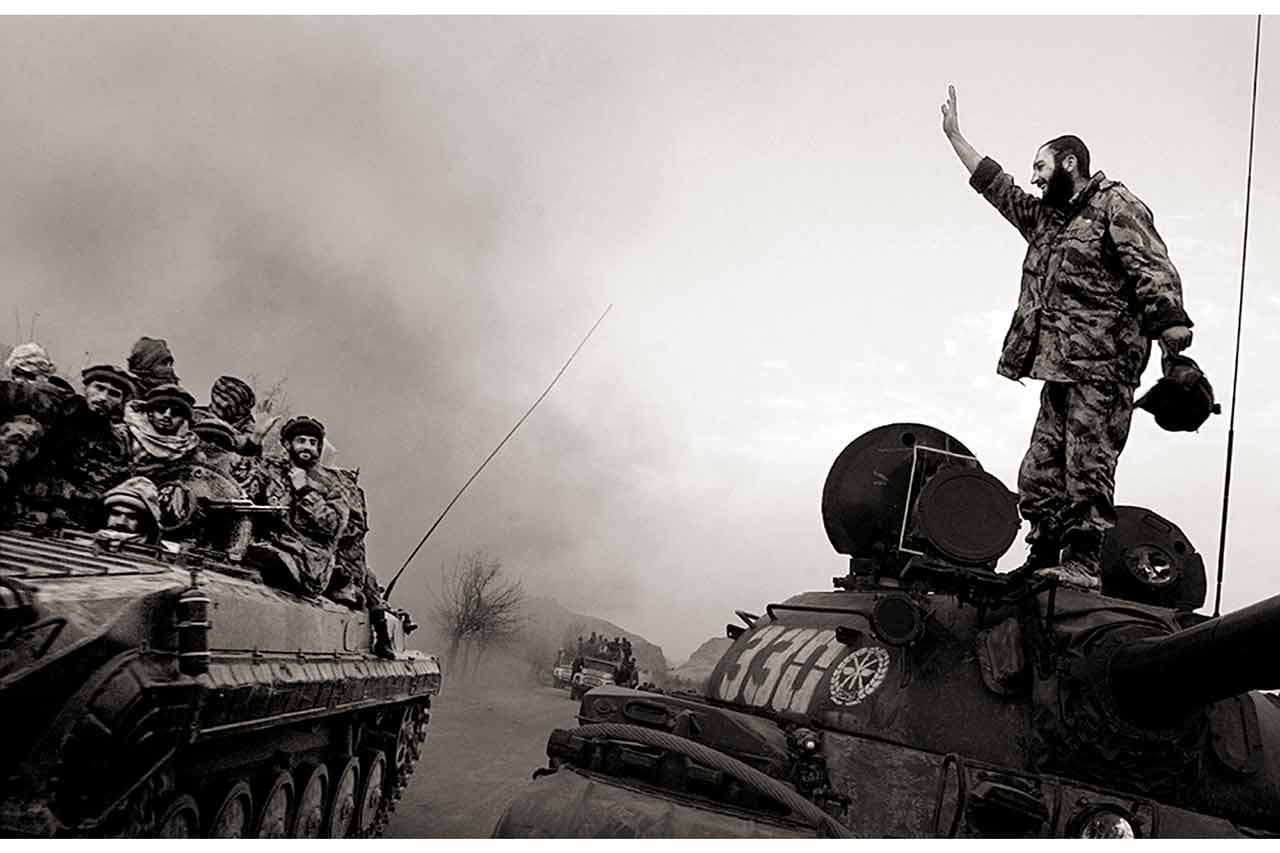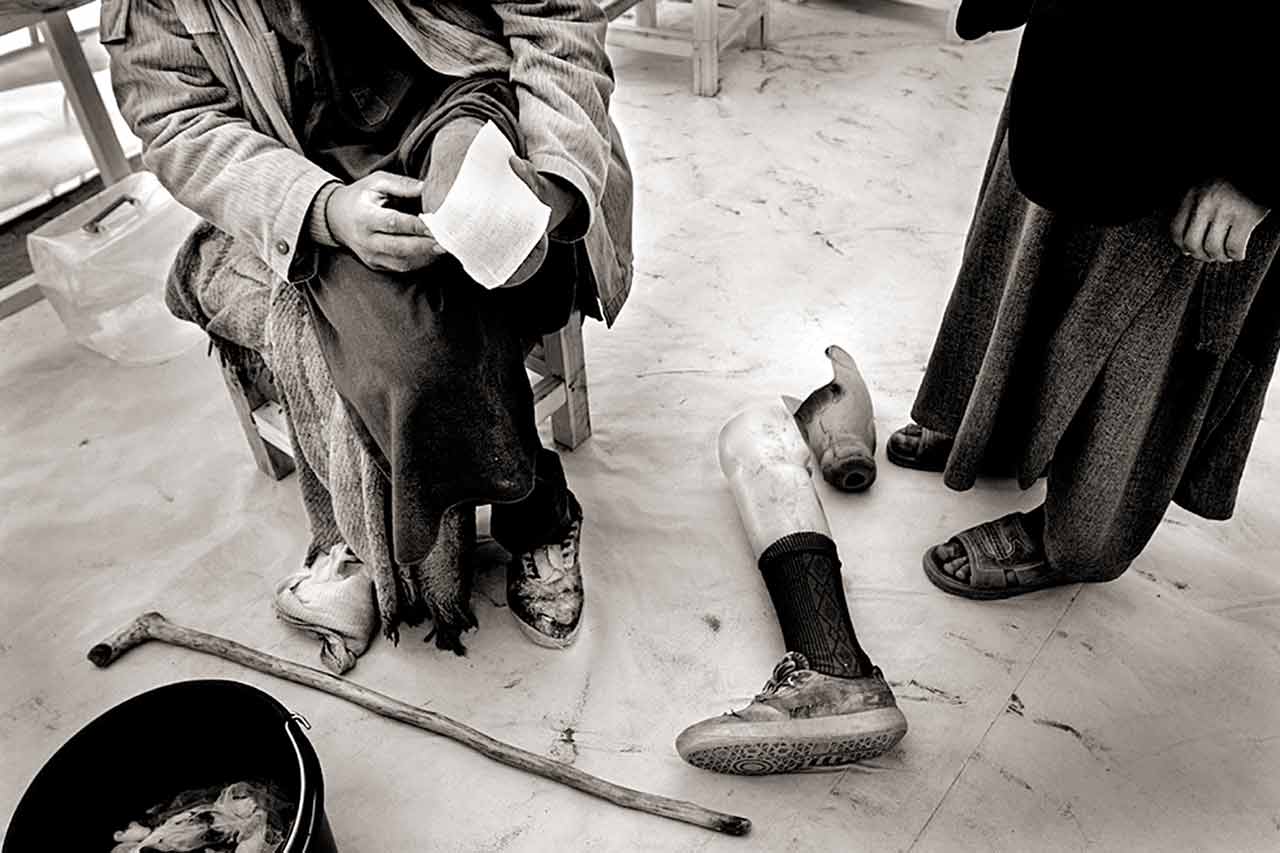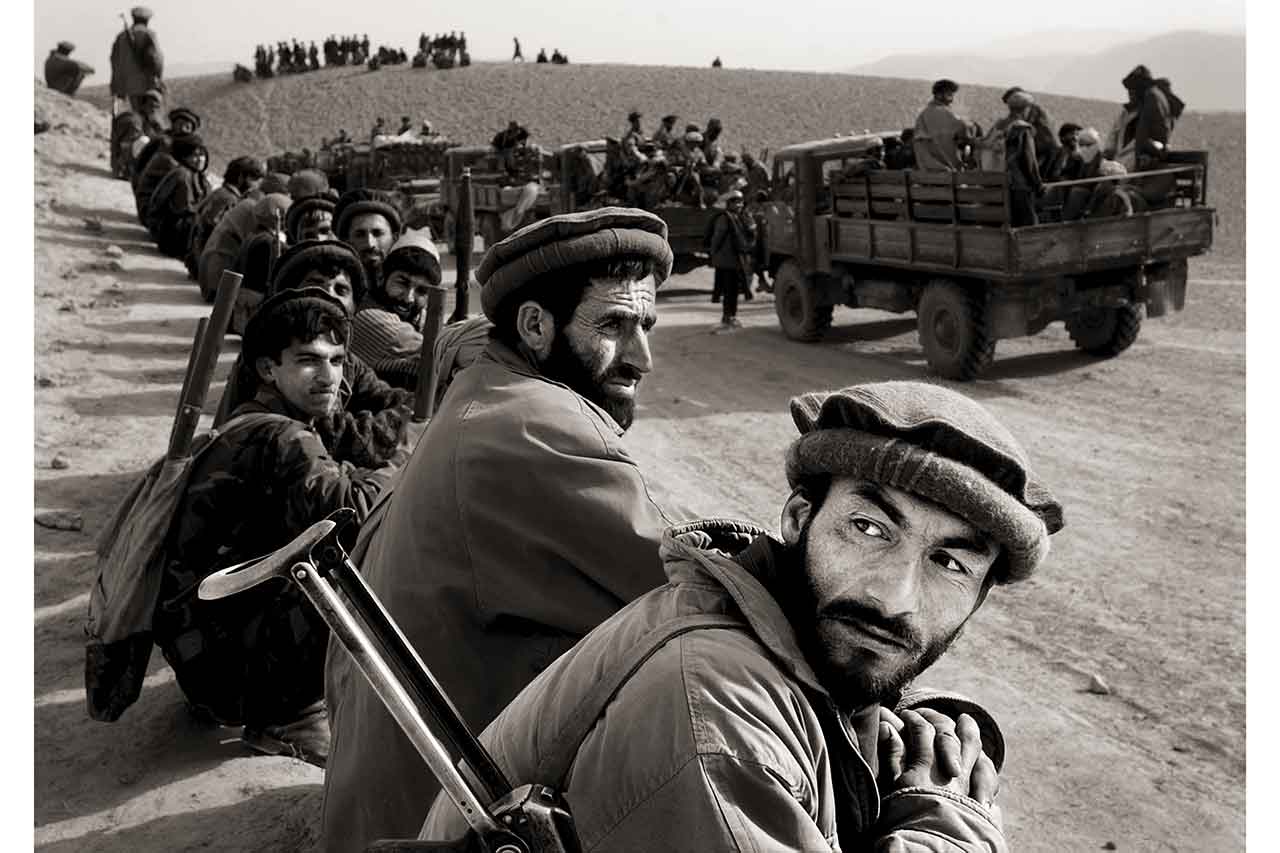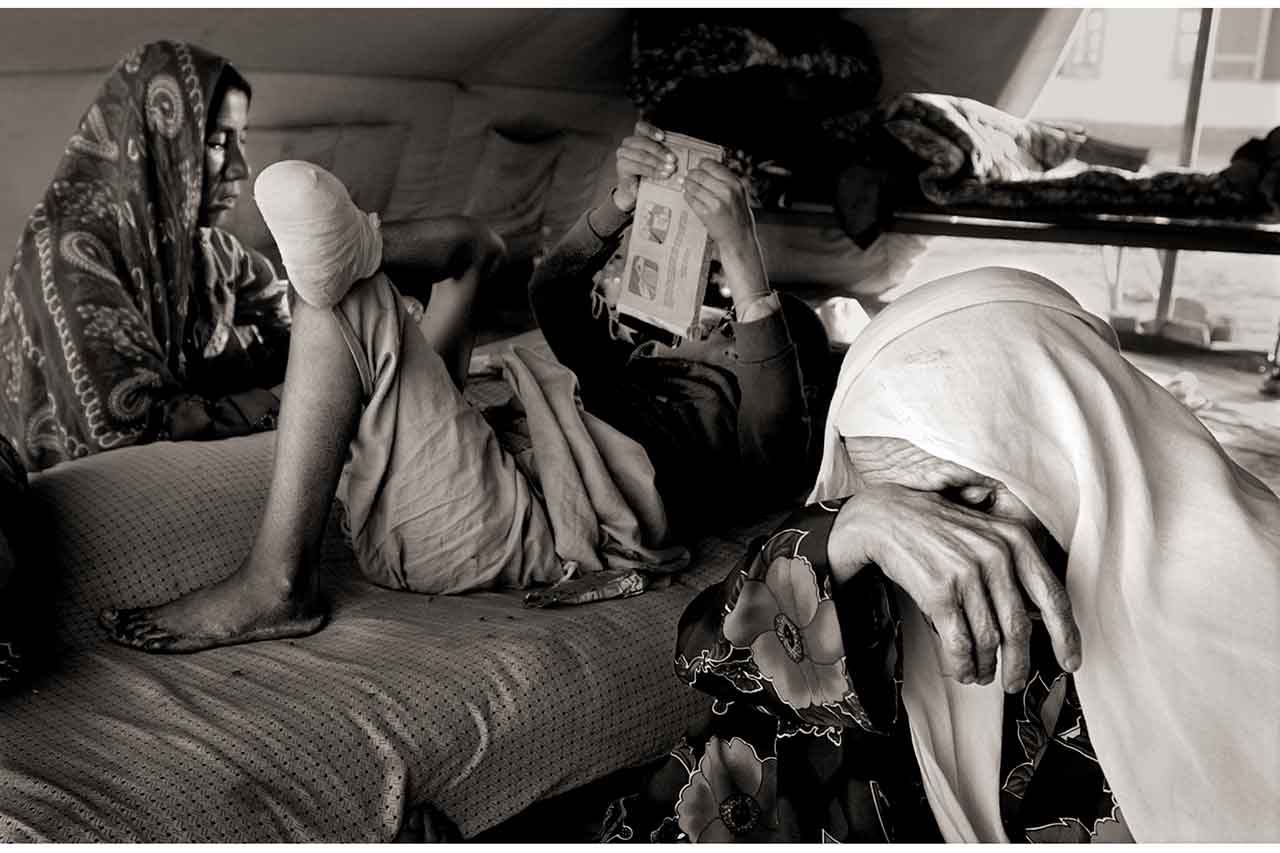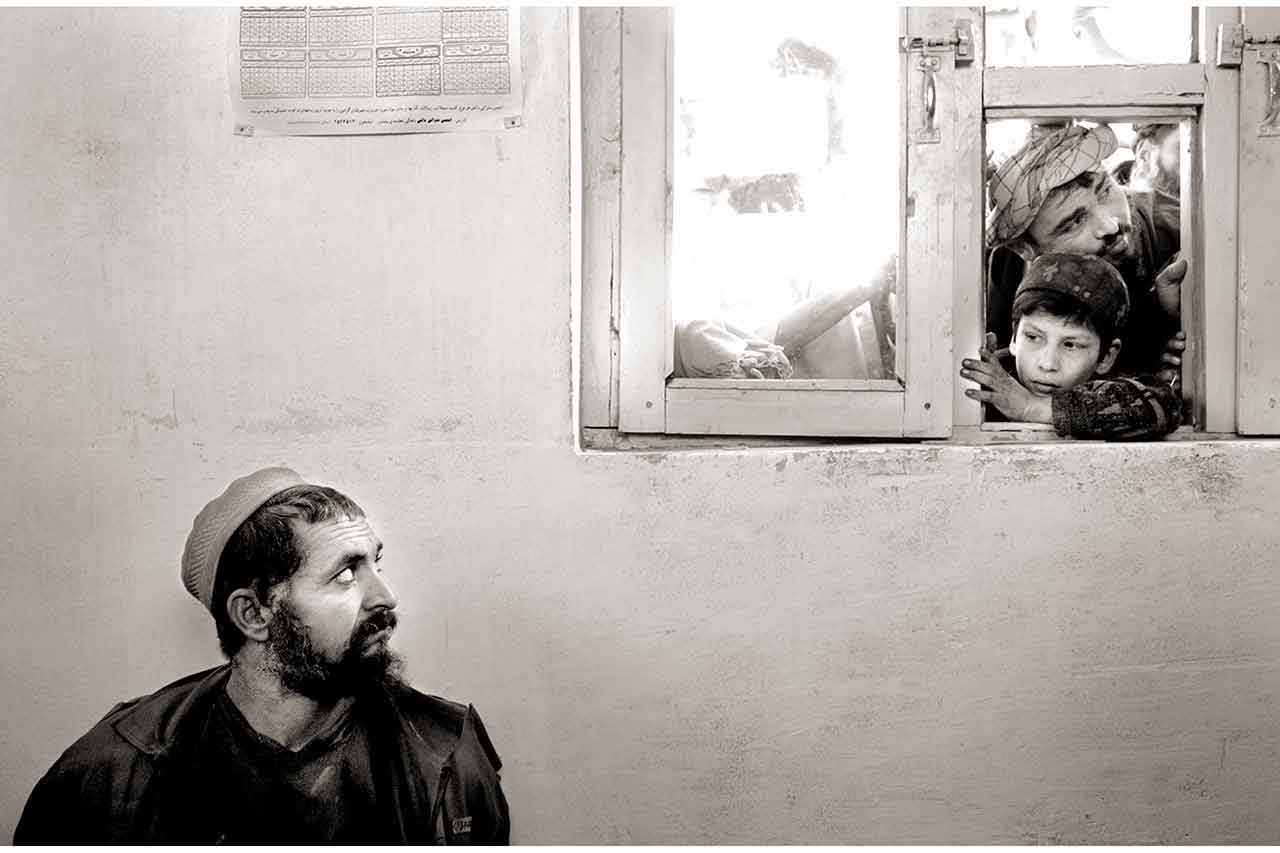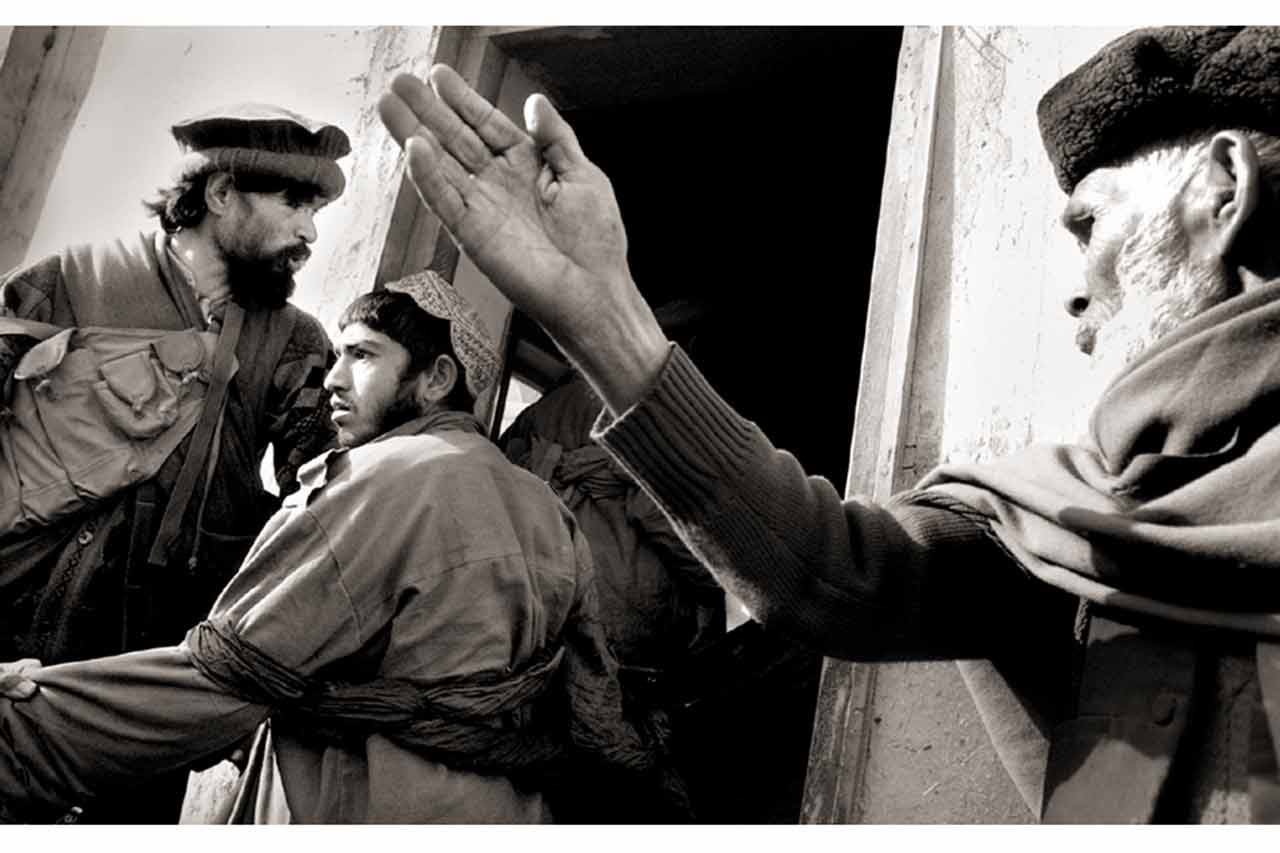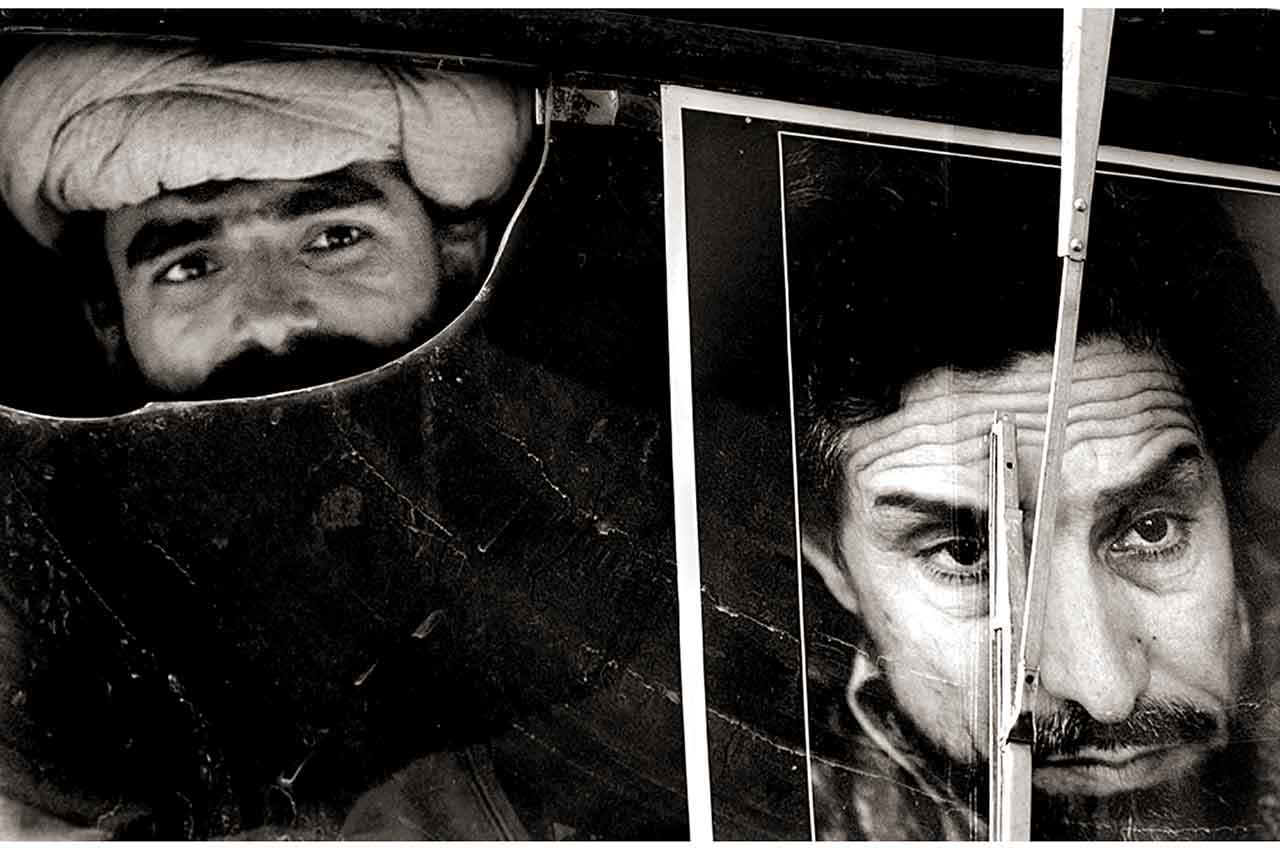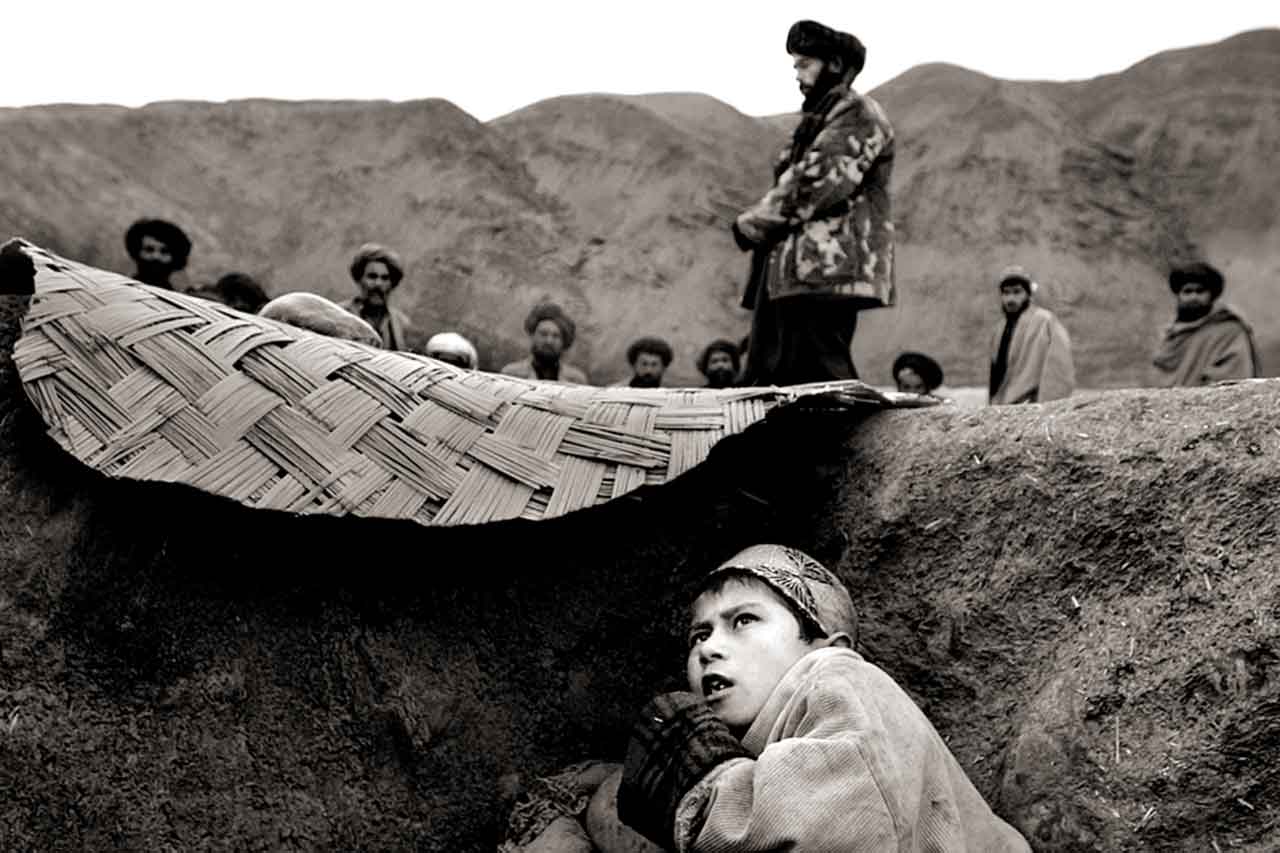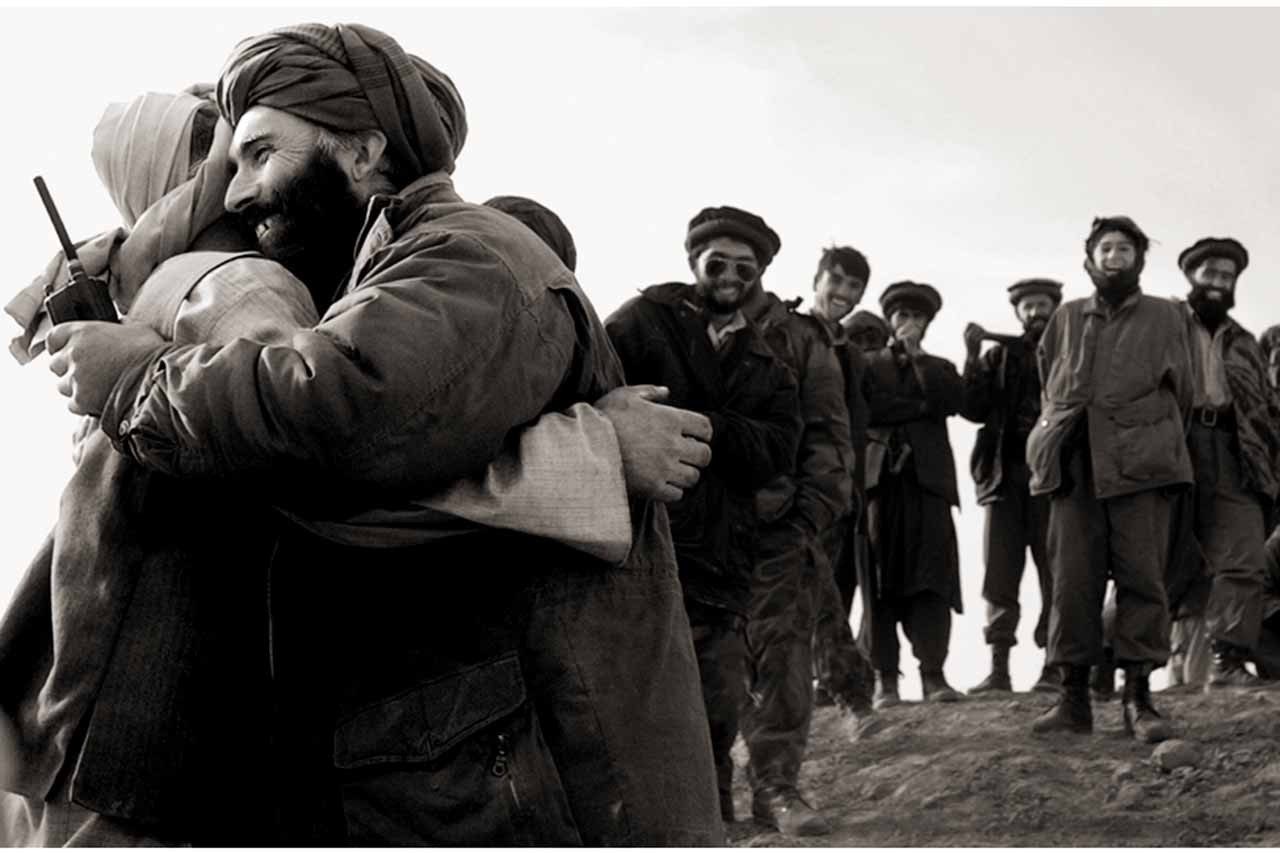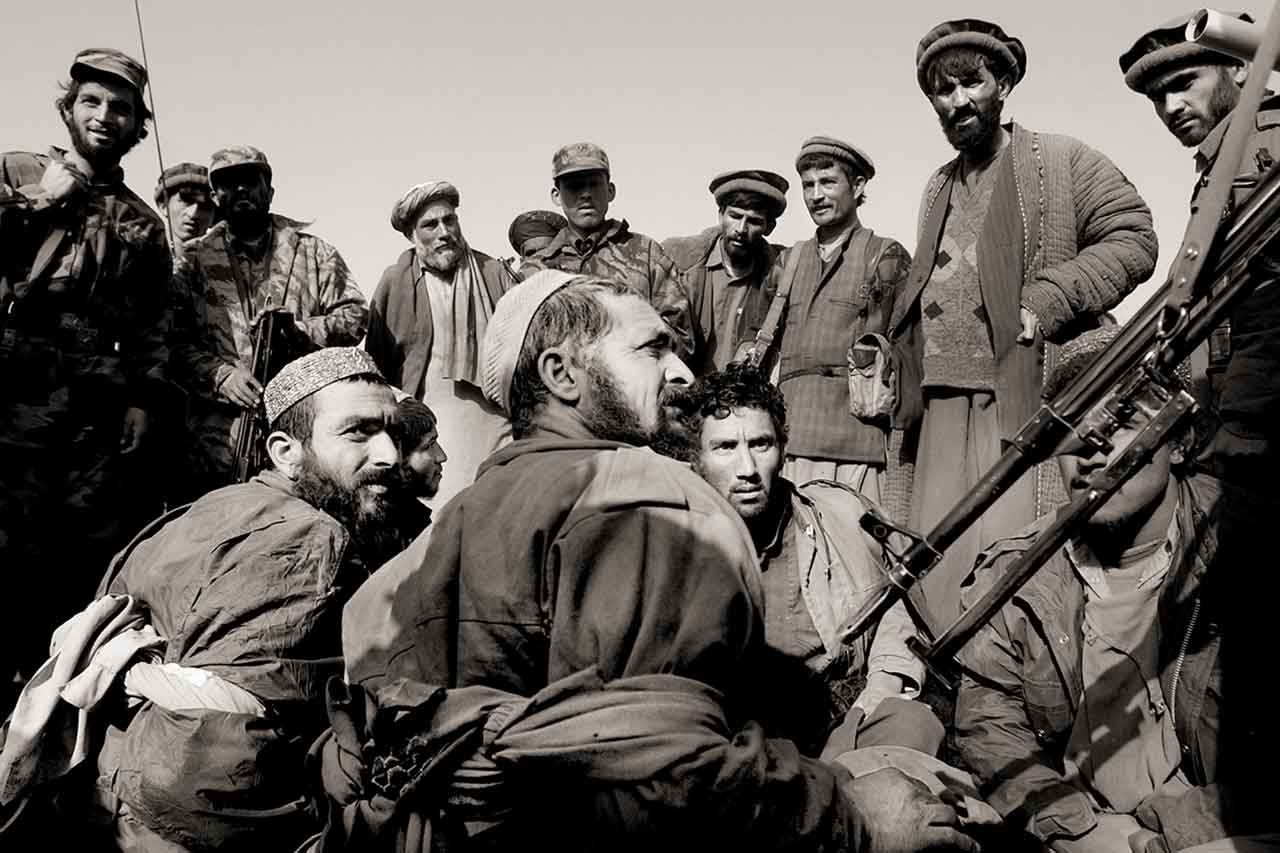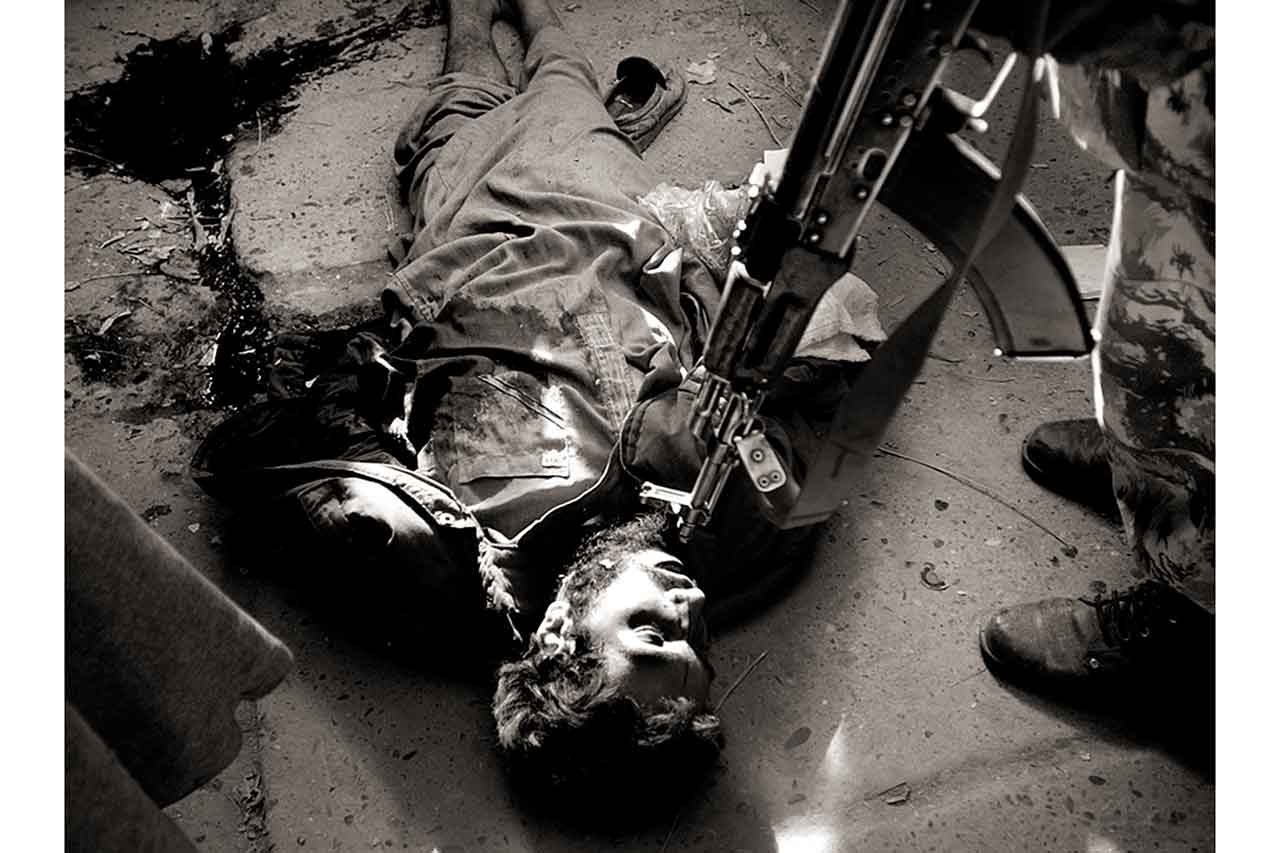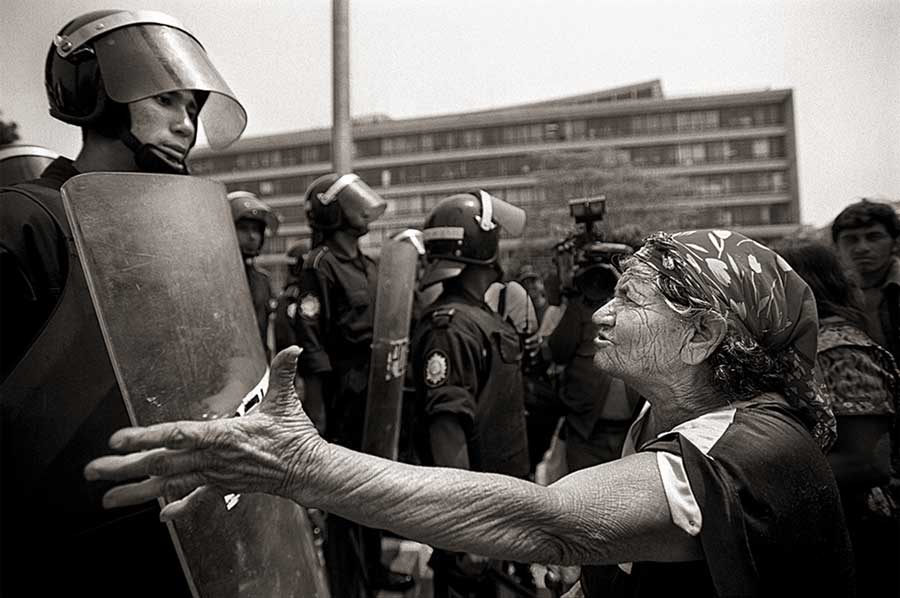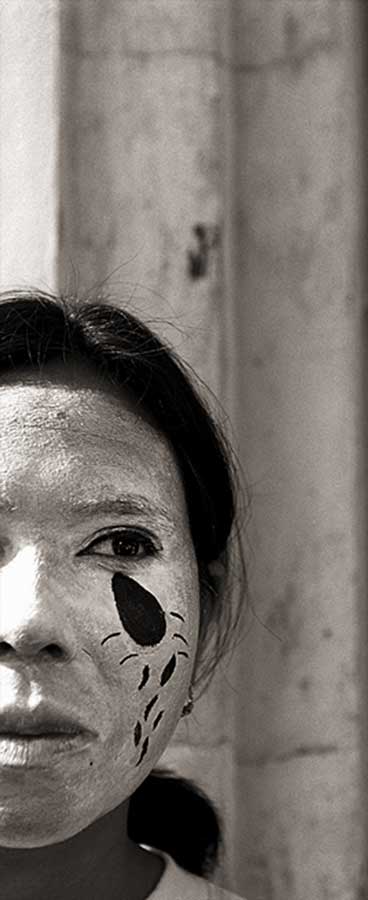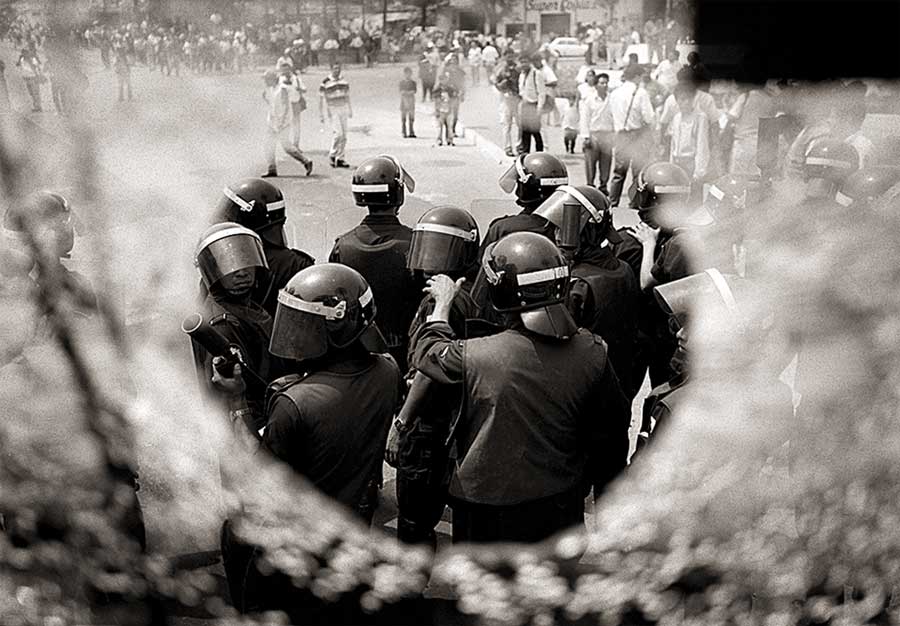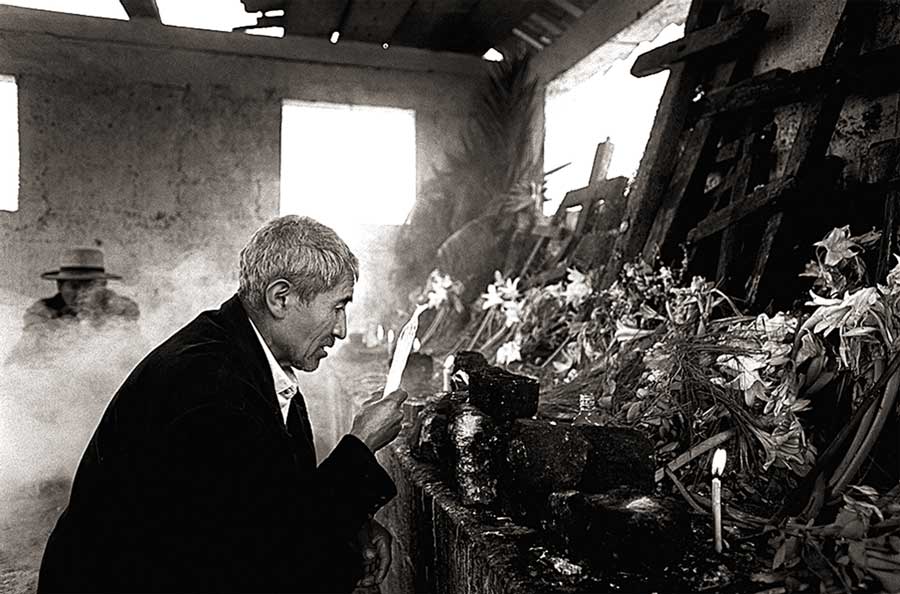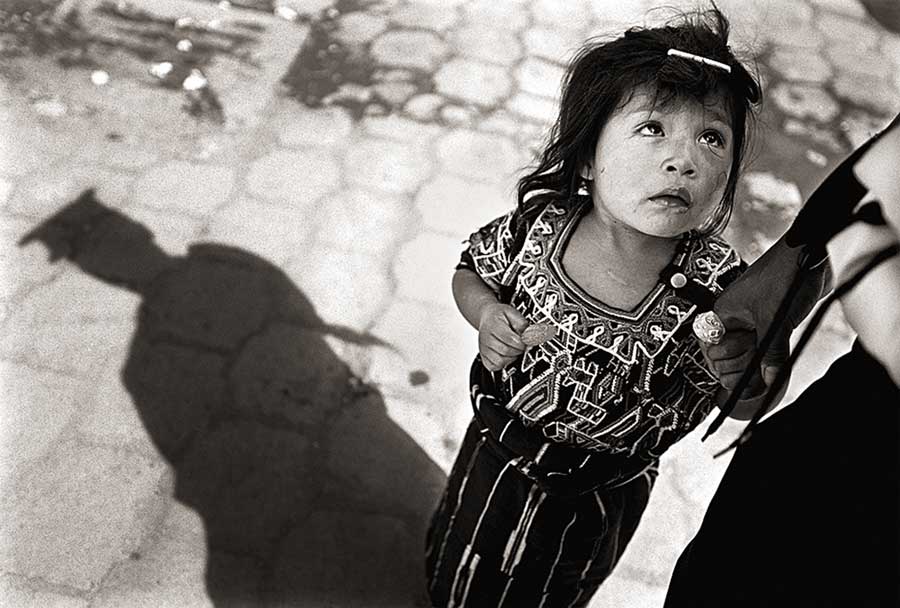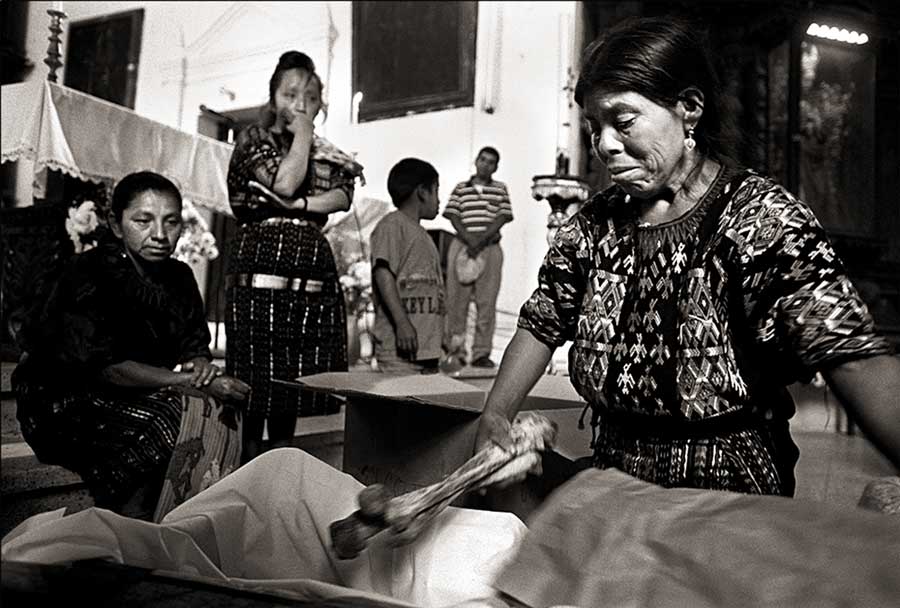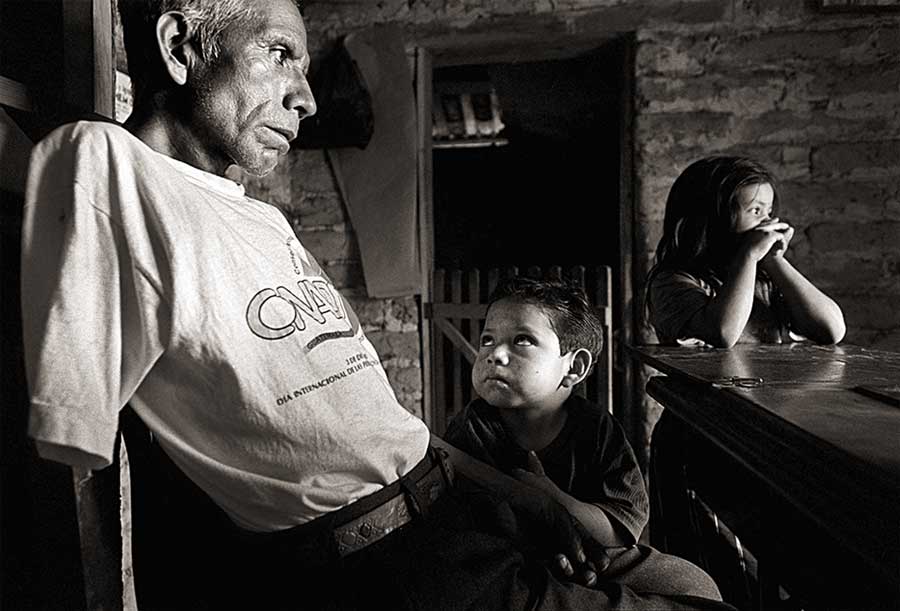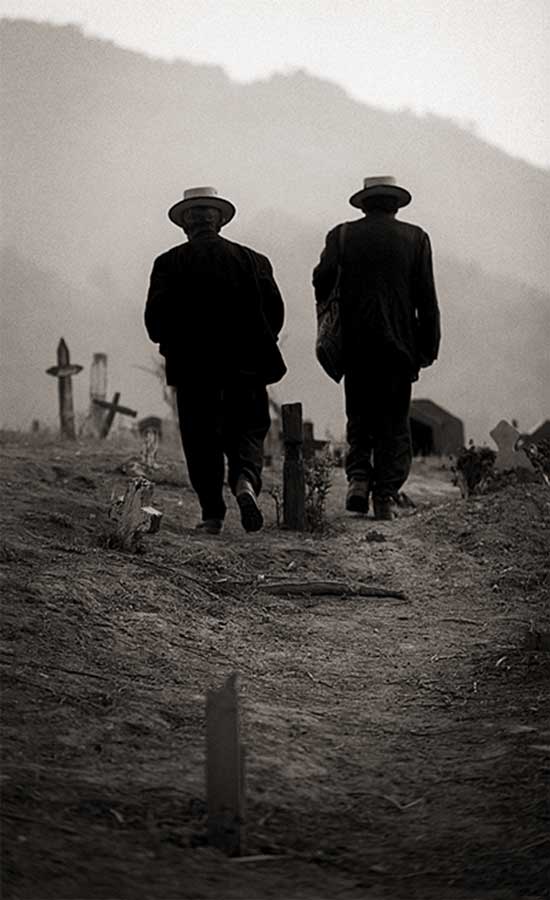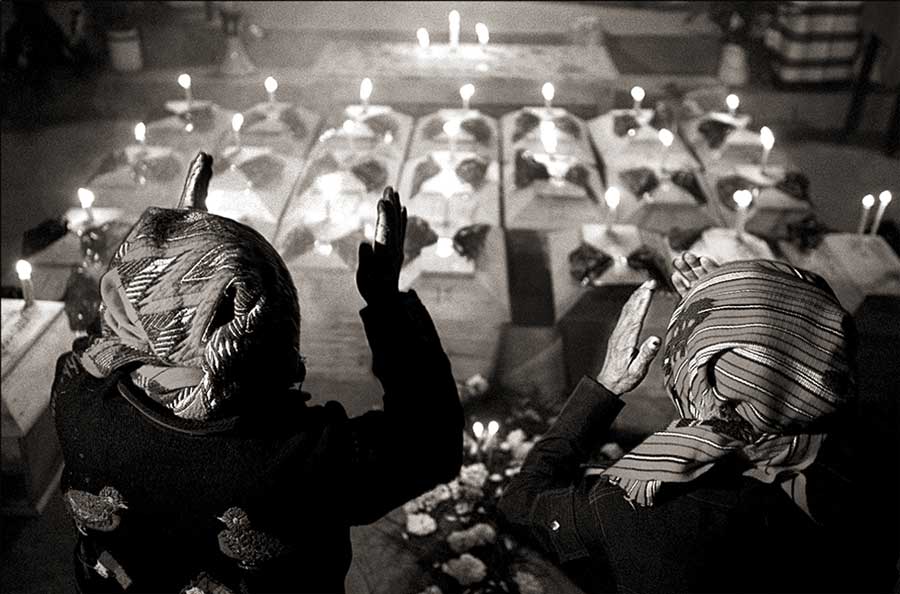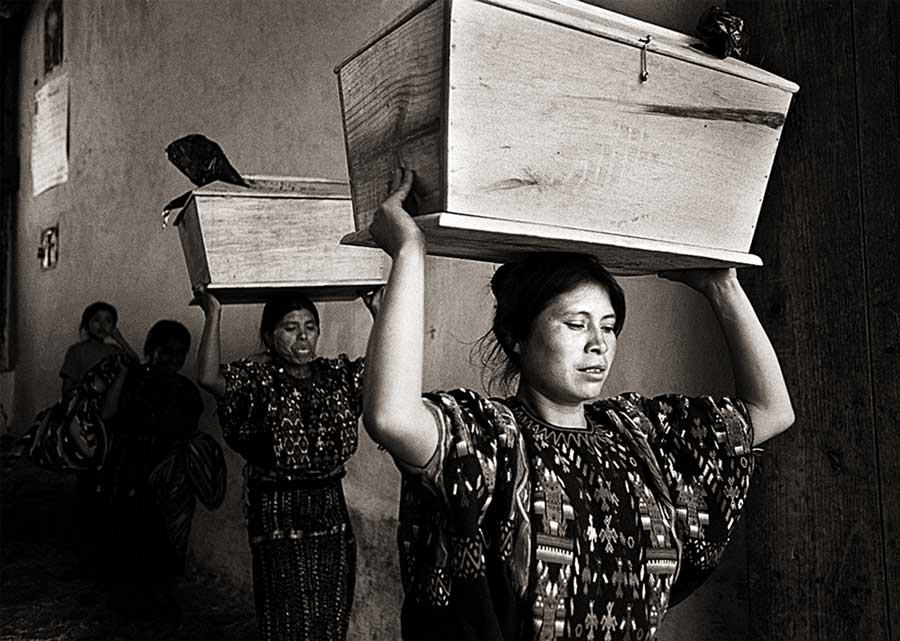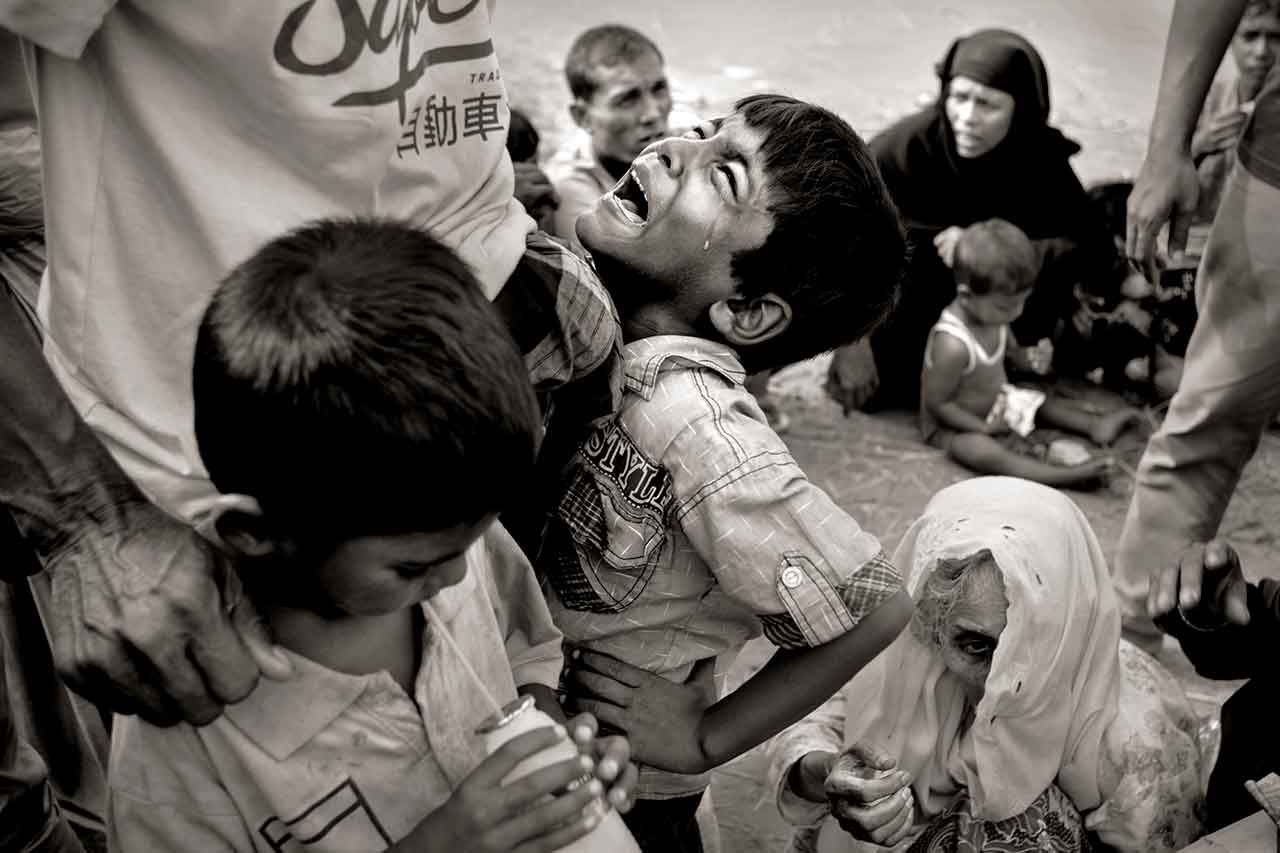
Myanmar's Rohingya refugee children show signs of trauma from the violence their families experienced at the hands of the Myanmar army; they wait to board boats in Chalpuridip, Bangladesh, to continue their journey to refugee camps further in the country on Oct. 3, 2017.
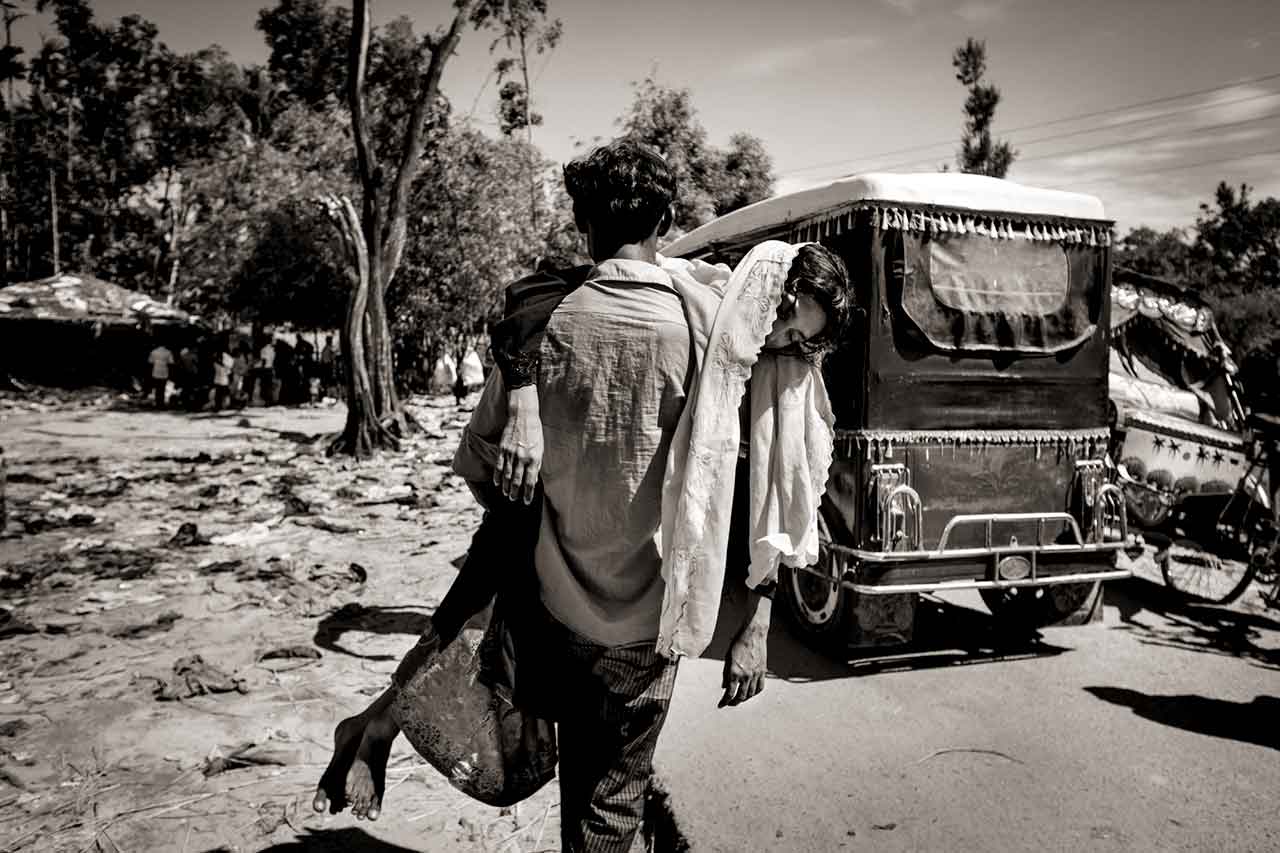
Hungry, tired and dehydrated, a Rohingya refugee carries his unconscious wife to a nearby auto rickshaw as they flee to Bangladesh, in Teknaf Upazila, on Oct. 4, 2017. Many refugees spoke of drinking salt water for several days to survive and fights erupting as they waited for boats to ferry them from Myanmar to Bangladesh.
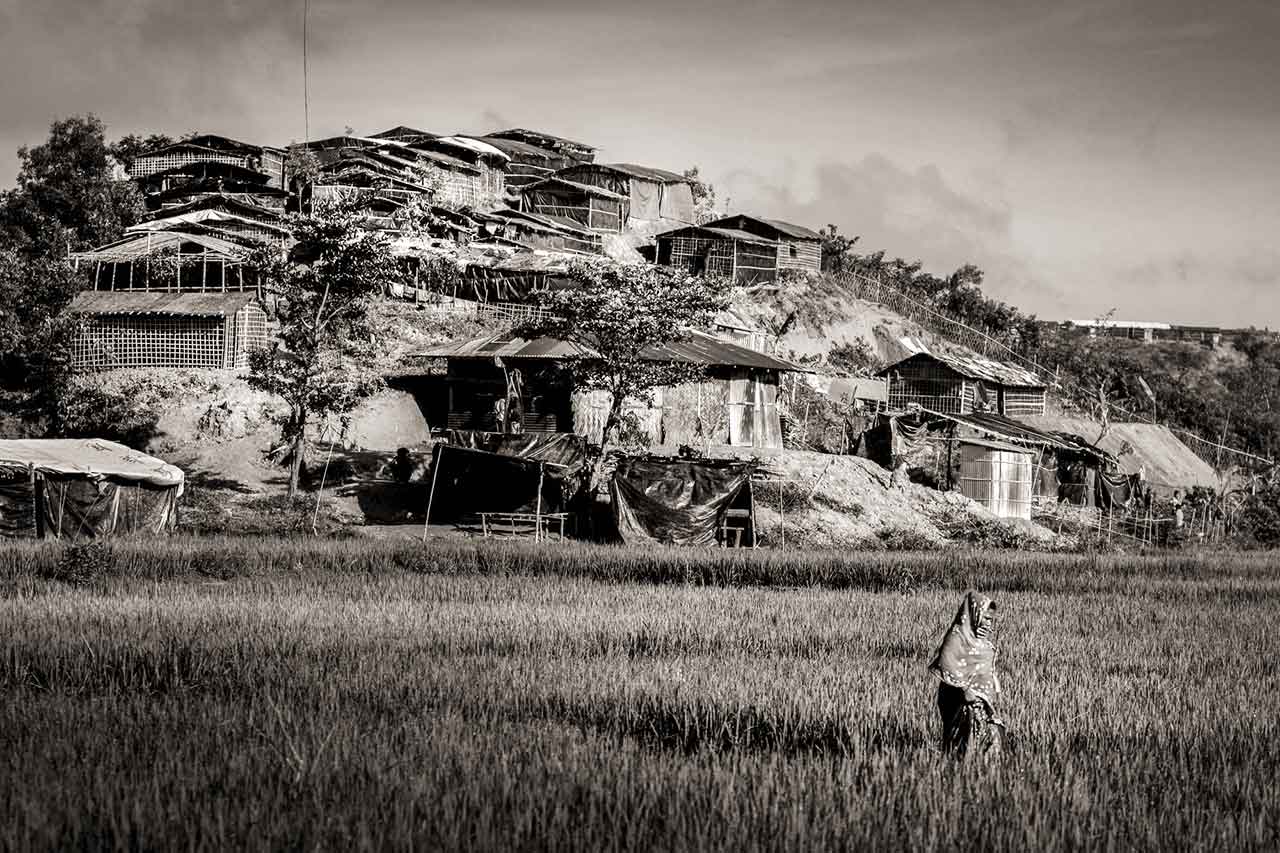
Once lush hills have been stripped of greenery as more than 600,000 Rohingya refugees arrive in Bangladesh, building shelters of plastic, tarpaulin and bamboo in Kutupalong Refugee Camp in Ukhia District, Oct. 11, 2017. As of September, the camp has over 10,000 shelters on 1.5 square miles, and is growing daily.
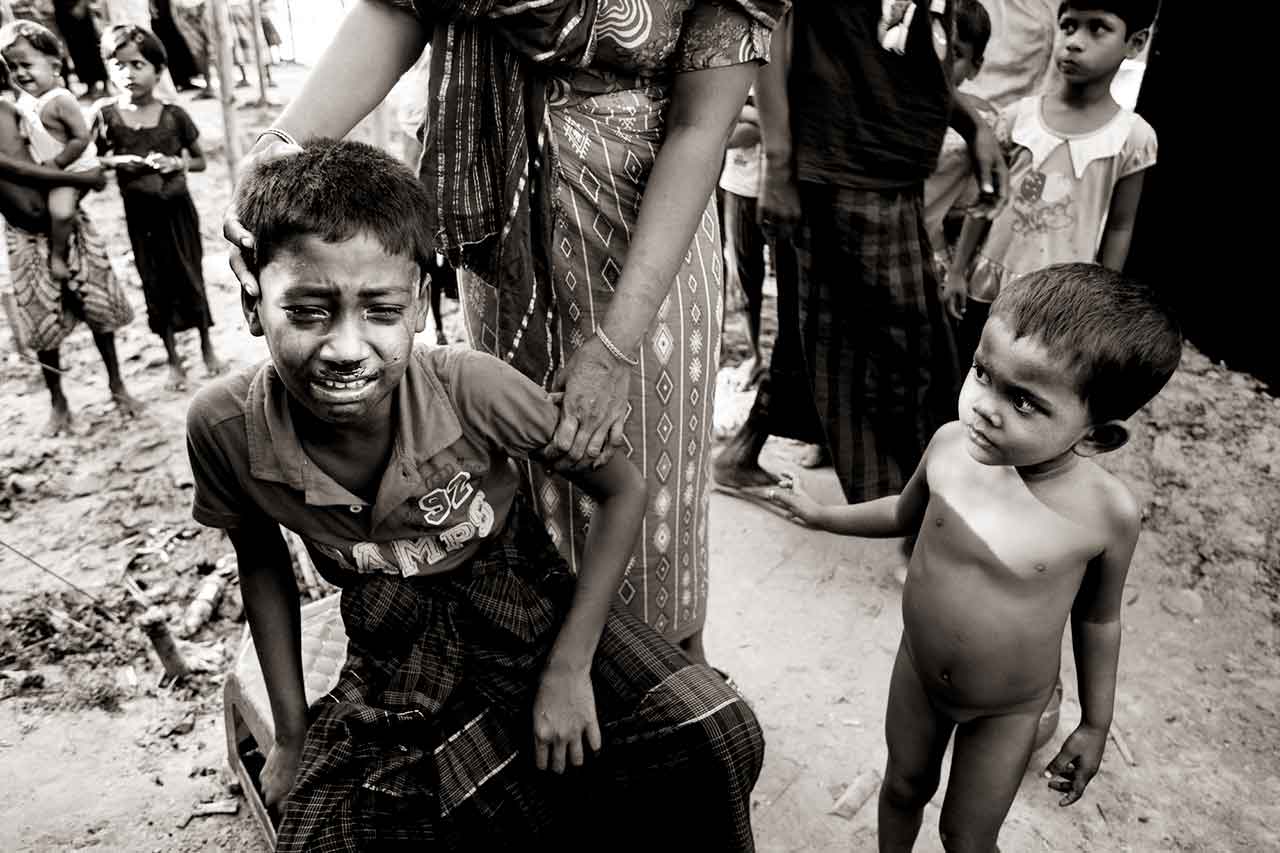
Orphan Mohammadshakir Mohammadkaisar, 10, is comforted by his aunt Yasmin Nurulhaq while cousin Zeshmintara Nurulhaq, 4, watches, after the boy was hit in the face during an altercation in Zadimora village near the Myanmar border in Bangladesh, Oct. 10, 2017. Tensions among refugees escalate as the stress of hunger, poverty and the ongoing violence in their home country flares.
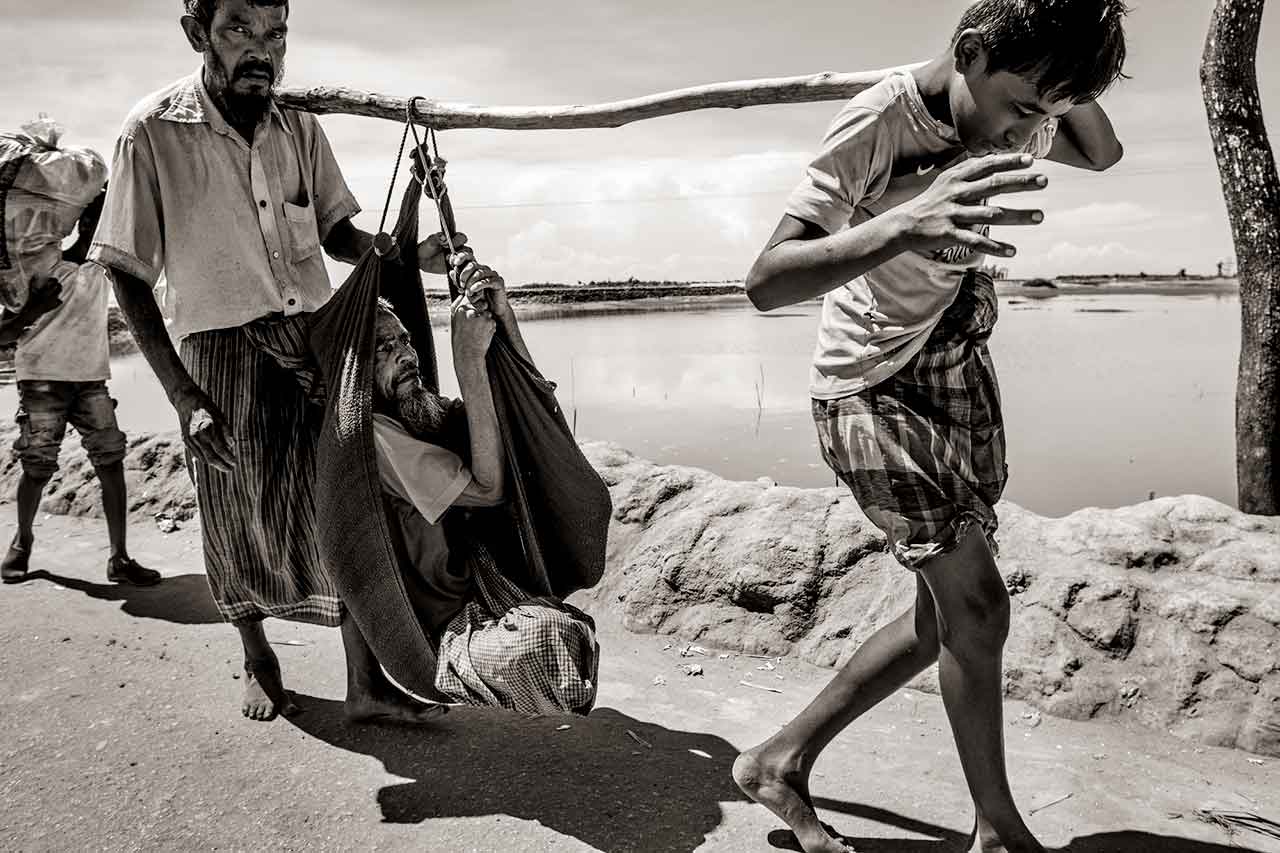
After escaping into Bangladesh, Rohingya refugee Dolohussam Amirkhamza, 60, is carried by his brother Rahamatullah Amirkhamza, left, and neighbor Rahim Mohammedhussein, right, as they journey from the southernmost tip of Bangladesh inland to refugee camps, in Teknaf Upazila, on Oct. 4, 2017.
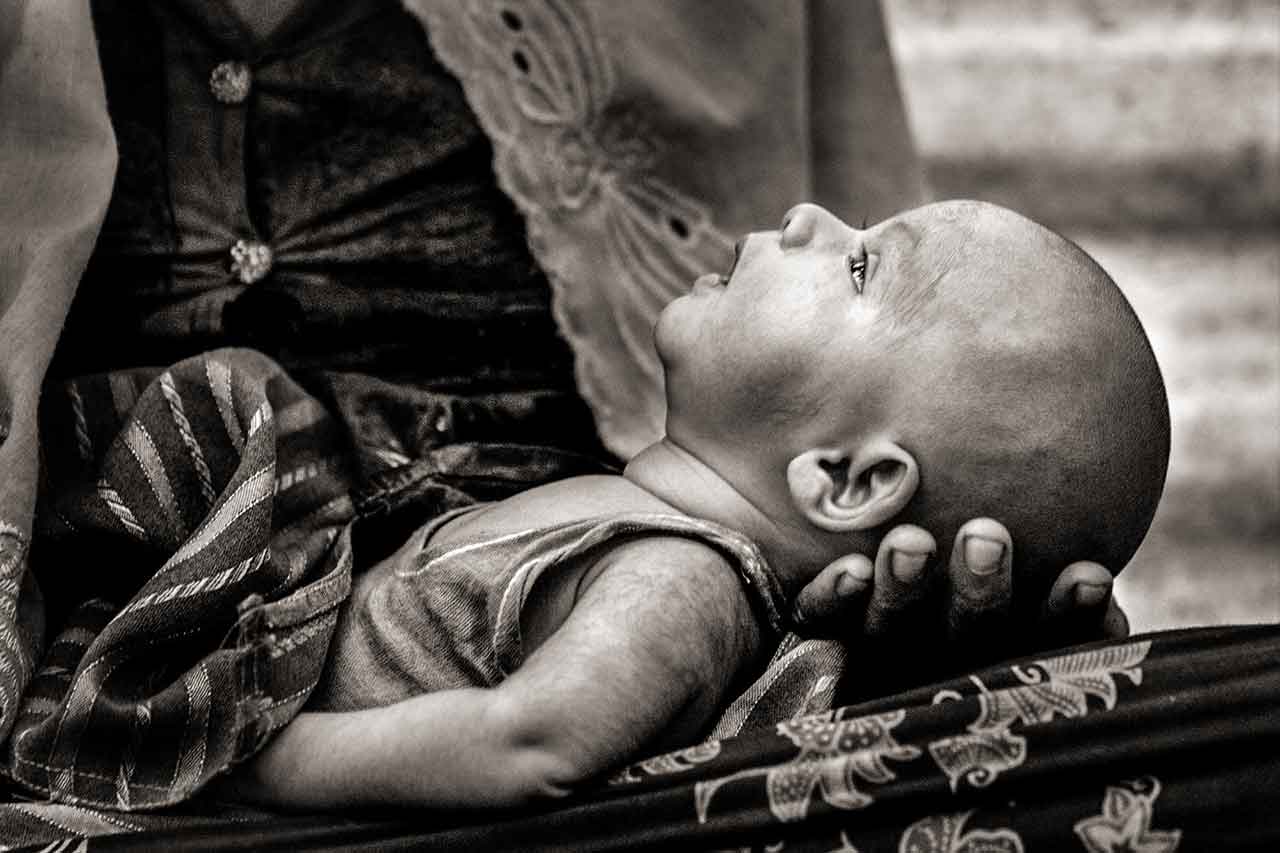
Rohingya refugee Bibijan Nurulamin, 25, holds her 7-day-old daughter in the unregistered camp of Musoni Noyapara near the Myanmar border in Bangladesh, Oct. 9, 2017. She was eight months pregnant with her fifth child when she walked for three days to reach Bangladesh with the help of her husband and 10 other family members. With no clean water, the family suffers from dysentery, including her daughter who lay listless in the stifling heat.
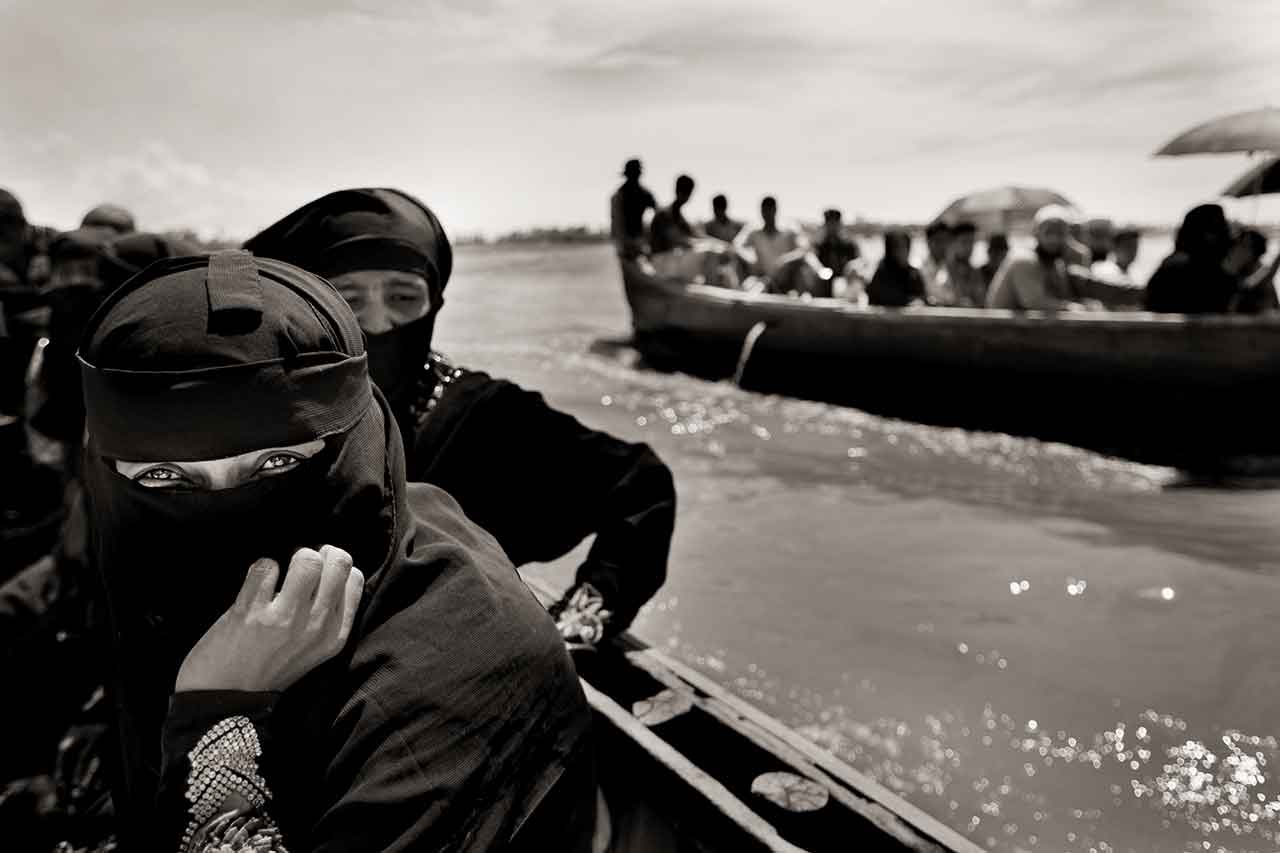
Myanmar's Rohingya refugee Anwara Nurhassan, right, takes a boat from Chalpuridip, Bangladesh, as she continues her journey to refugee camps further in the country on Oct. 3, 2017.
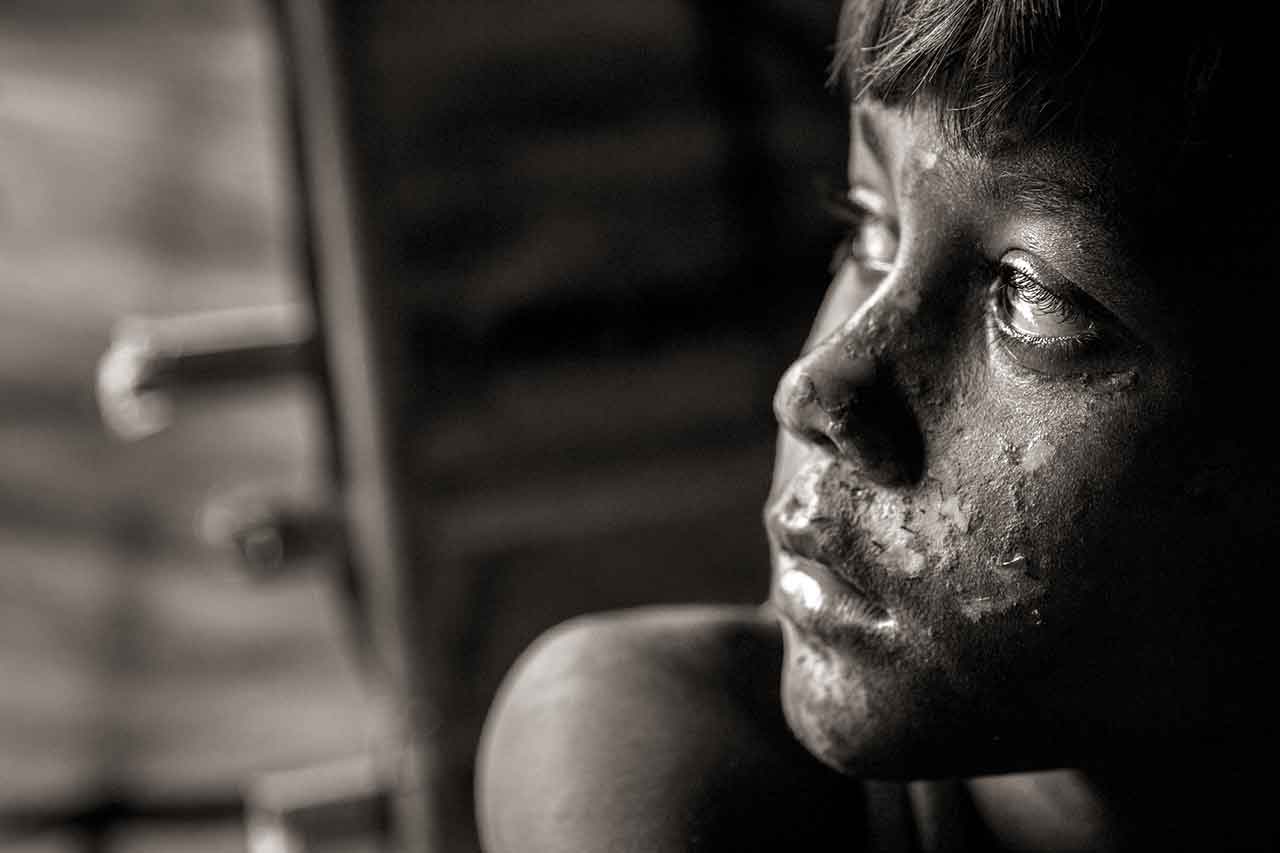
Mohammadshofait Kurimullah, 8, still suffers from burn wounds when their house was set on fire in Lambaghuna Moungdaw in Myanmar. His mother, Yasmin Kurimullah, says she has not seen his father and one of her other sons since August 25. They settled in Whaikhyang Refugee Camp in Bangladesh, Oct. 6, 2017.
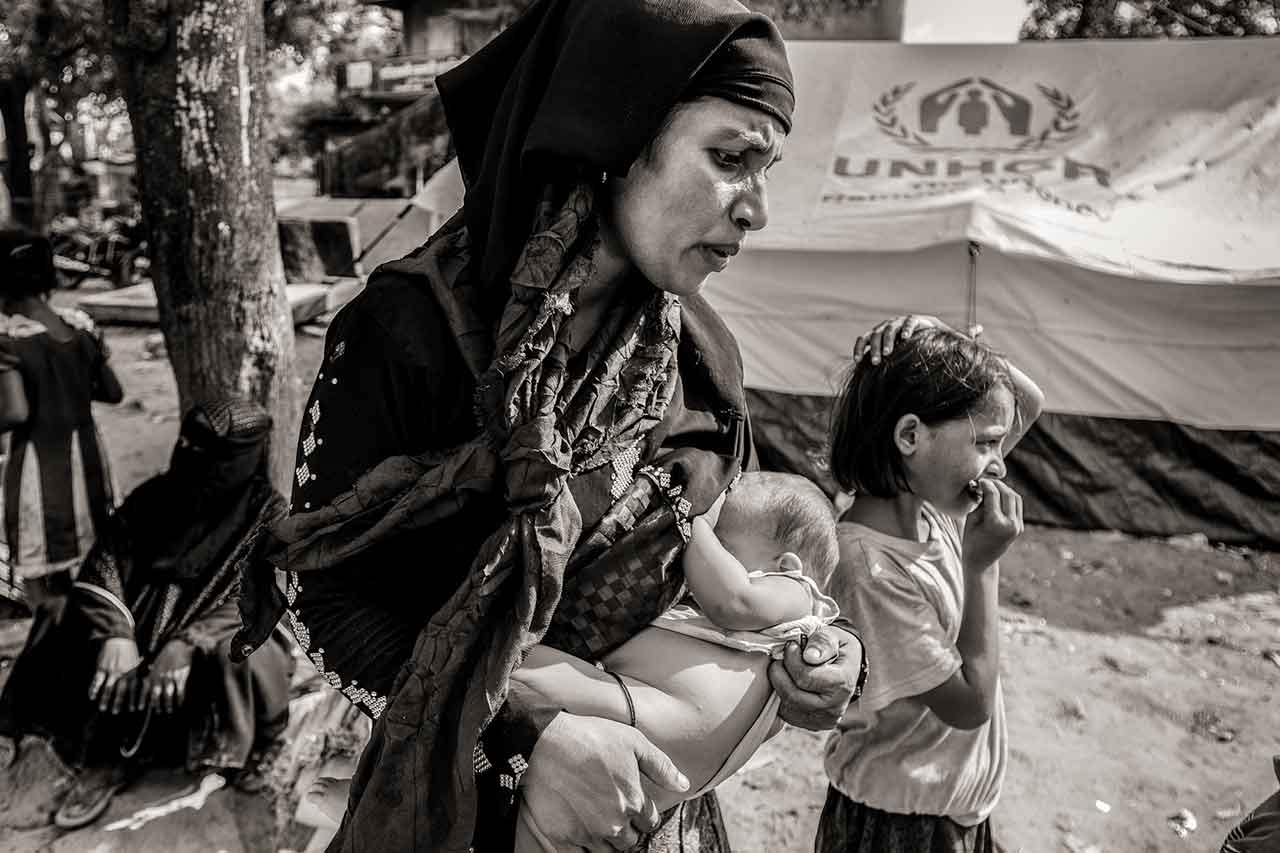
Rohingya refugee Morean Katu nurses her six-month-old daughter Tokhia Katu while waiting with daughter Sherfara Katu, age 11, at an army post in Teknaf Upazila, after escaping from Myanmar into Bangladesh on Oct. 2, 2017.
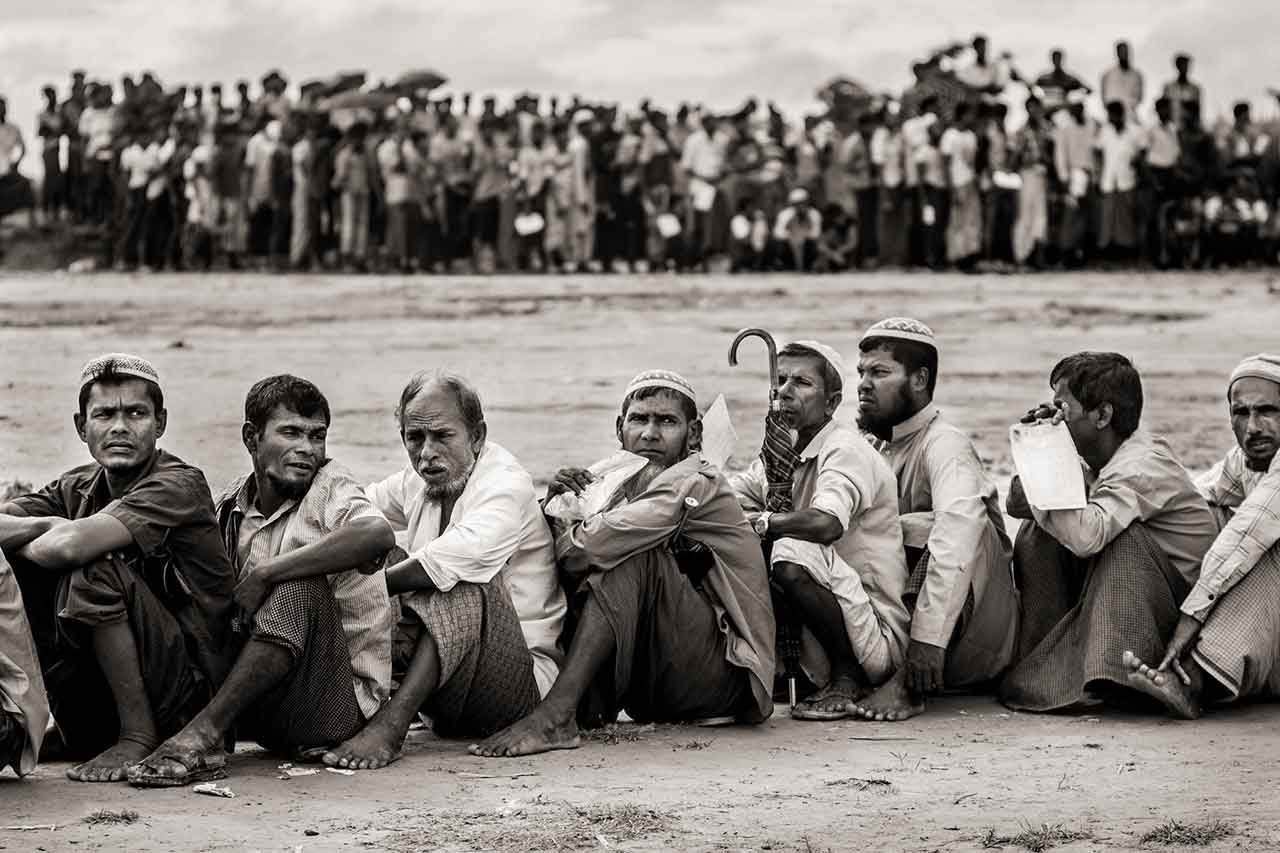
Hundreds of newly arrived Rohingya refugees wait for aid just outside the Noyapara refugee camp in Bangladesh on Oct. 6, 2017. As refugees, they are not permitted to work in Bangladesh.
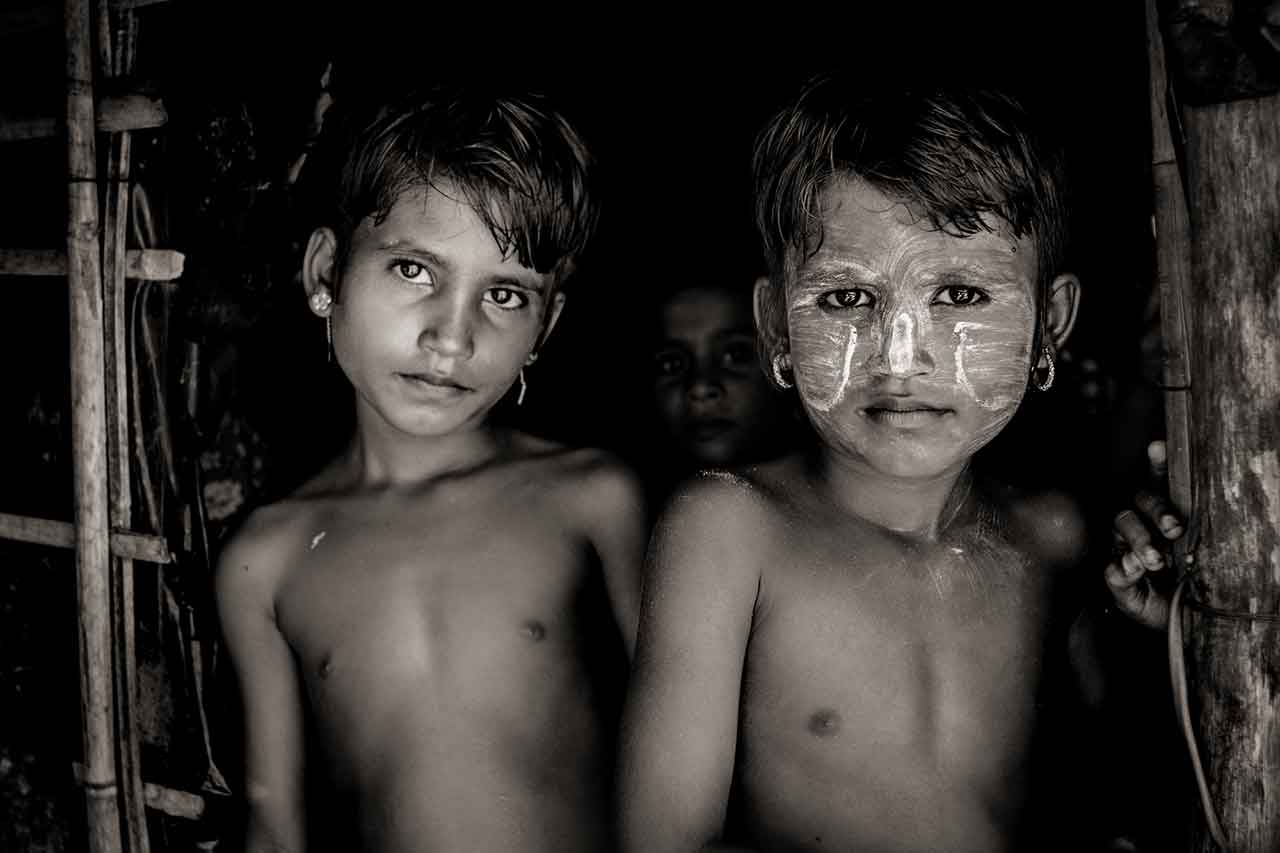
Twins Unasbibi and Joynobbibi Amirkhamza, both 7, left and right, lost their father on September 1 to violence that erupted in Myanmar's Rakhine state, the predominantly Muslim region in a majority Buddhist country. Joynobbibi paints lime powder on her face to beautify. According to their grandfather, Amirkhamza Zalaluddin, village chairman of Sainda Para Moungdaw, the entire village of over 3,000 people is now in Bangladesh.
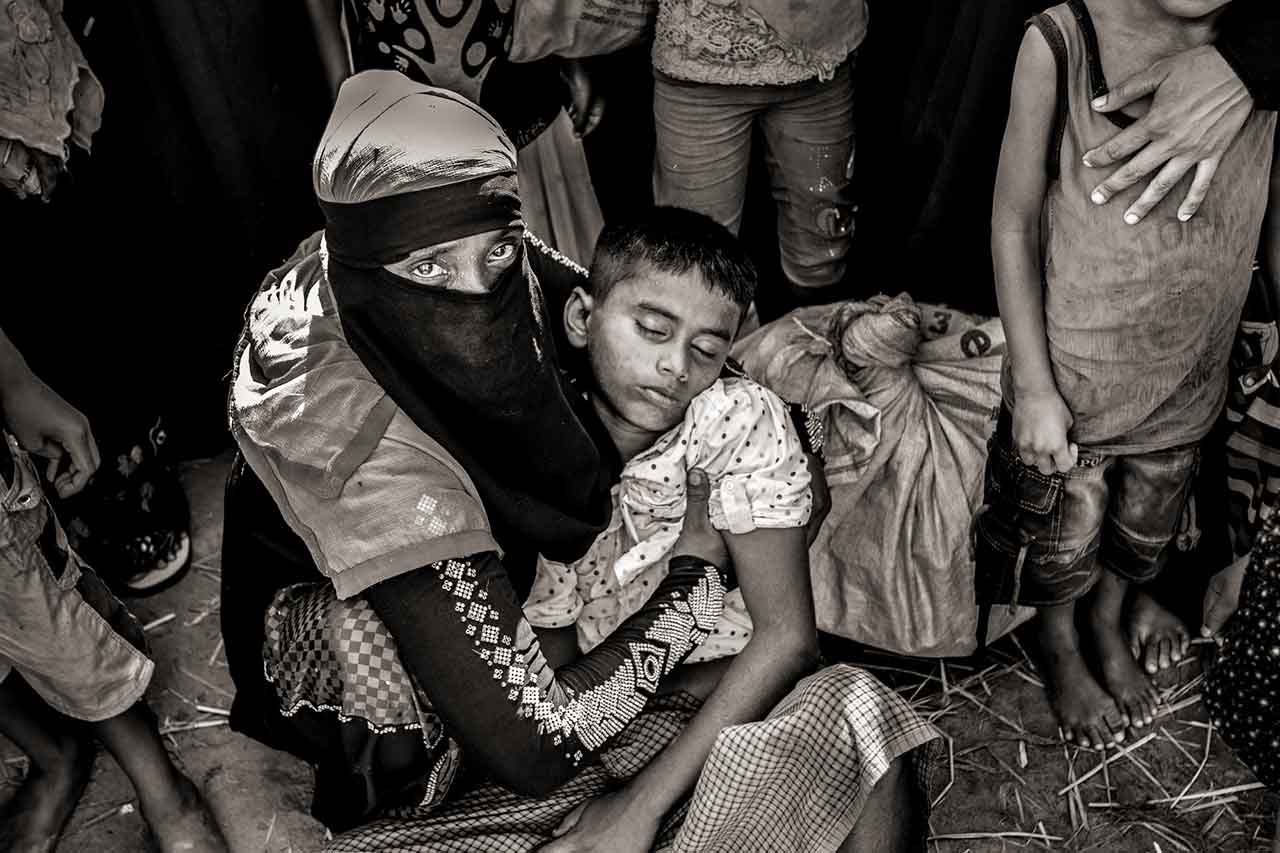
Myanmar's Rohingya refugee Halimakhatoum Ayoub holds up her son Mohammad Ayoub who fell unconscious as they made their way from the village of Sikdarpara Maungdaw in Myanmar to Chalpuridip and onwards to refugee camps in Bangladesh on Oct. 3, 2017.
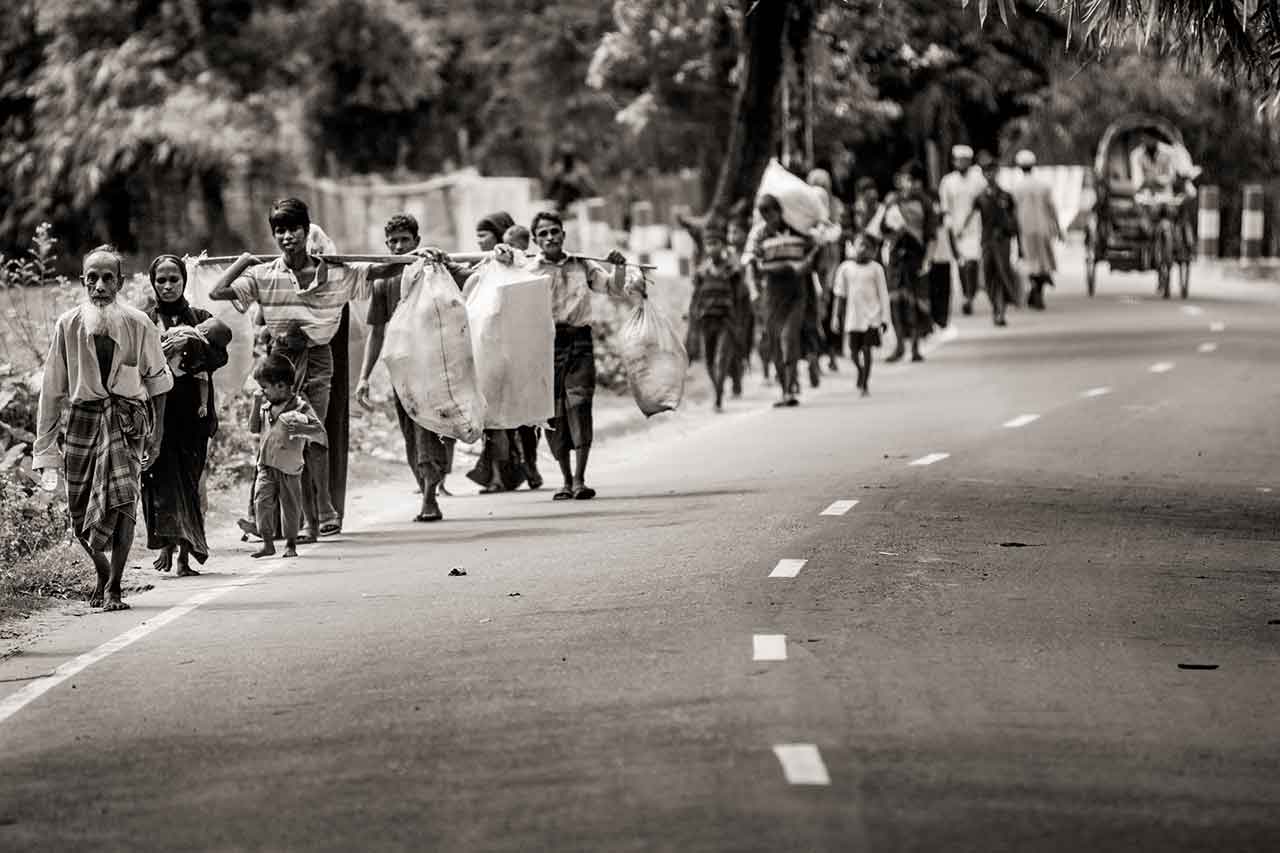
Myanmar's Rohingya refugee Abduljabar Abdulmajid, 78, far left, escapes Myanmar and journeys further on to refugee camps in Bangladesh, on Oct. 4, 2017. "They were shooting the nearby village so my five sons escaped, and I was left behind and was afraid," said Abduljabar. "Finally, they returned for me and we walked 5 kilometers to the border. I was separated from my sons at the boats so I am looking for them."
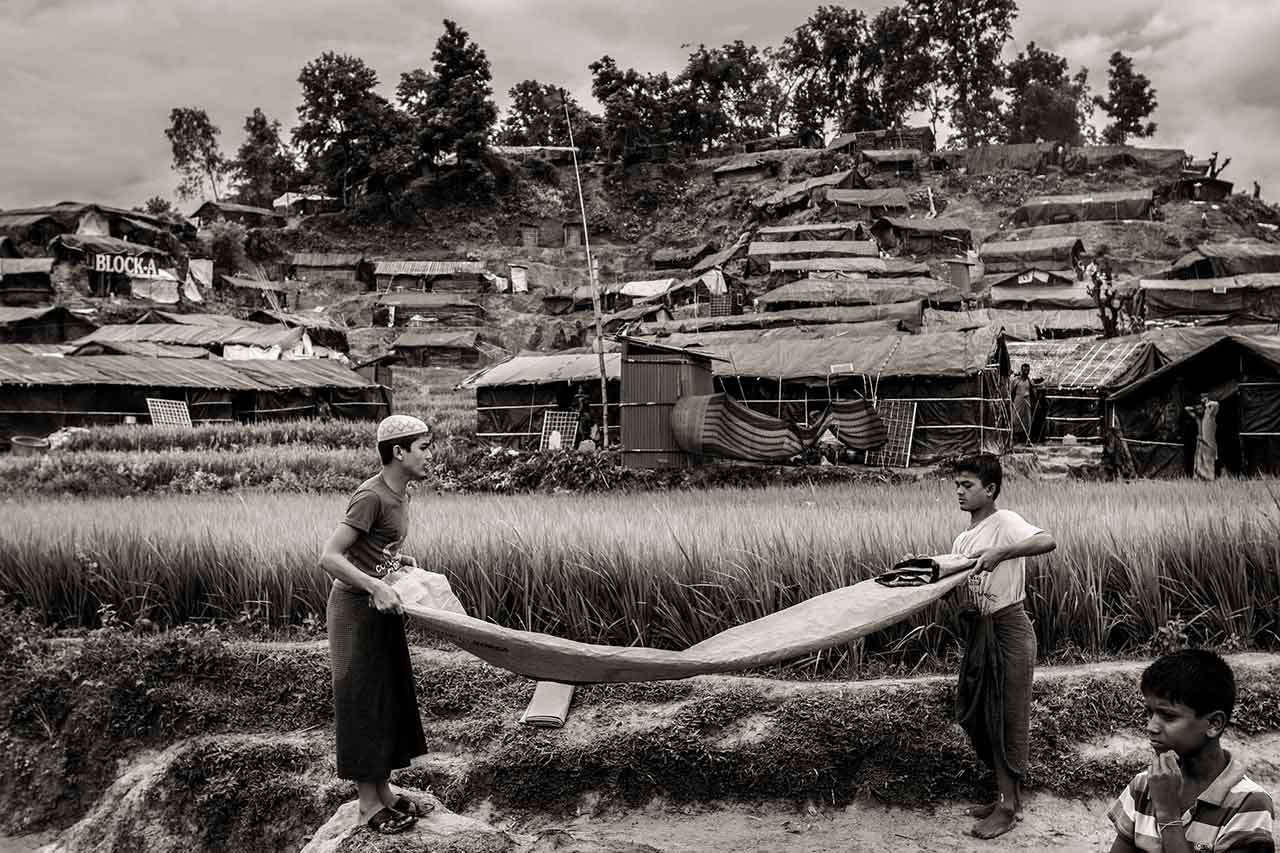
Between rains, Rohingya refugees fold up a tarpaulin in Whaikhyang Refugee Camp in Bangladesh on Oct. 6, 2017. Hills once lush with greenery have been stripped and now shelter thousands of refugees seeking safety.
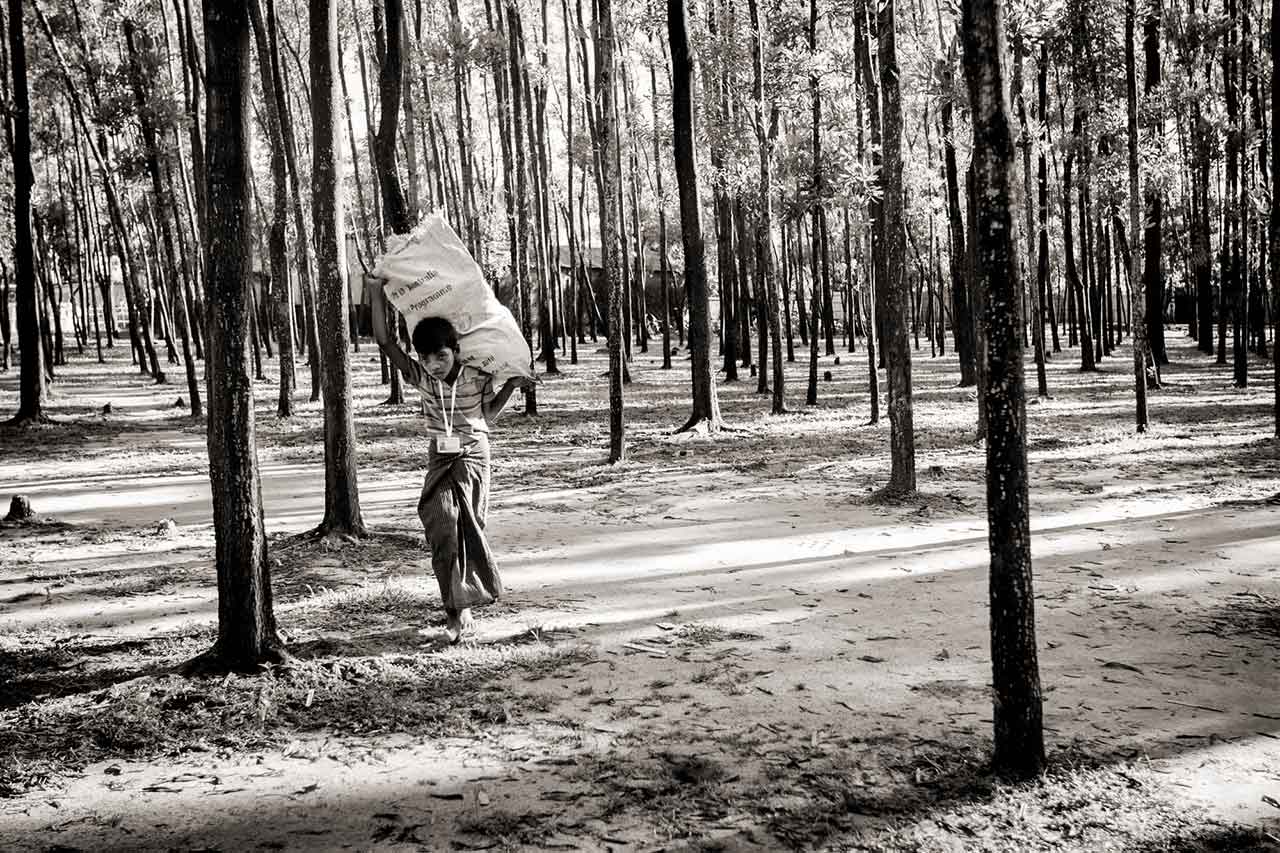
Dildarhossein Hafezahammed, 11, helps move his aunt's pots and pans to the family's new shelter in Zadimora village, an unregistered refugee camp growing with plastic and bamboo shelters built by newly-arrived Rohingya refugees, near the Myanmar border in Bangladesh, Oct. 10, 2017.
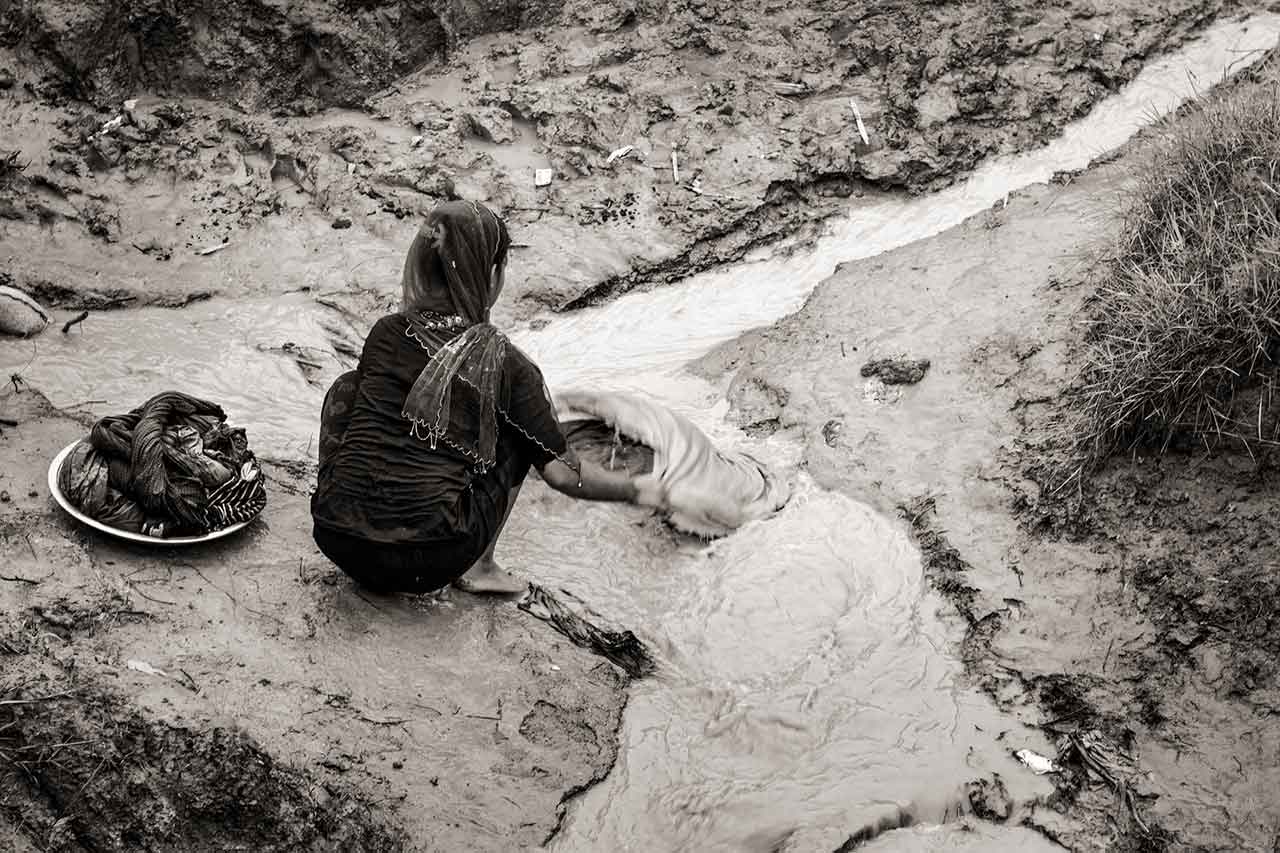
Dilkayas Salehahmad, 11, washes clothes in the muddy waters flowing through Whaikhyang Refugee Camp in Bangladesh on Oct. 6, 2017. Only a month earlier, Dilkayas and her parents fled their village of Khawerbil Moungdaw in Myanmar to come to Bangladesh. Her father was blinded by Buddhists who attacked him in 2012. "We don't have any water in our shelter so I wash clothes in the stream," said Dilkayas.
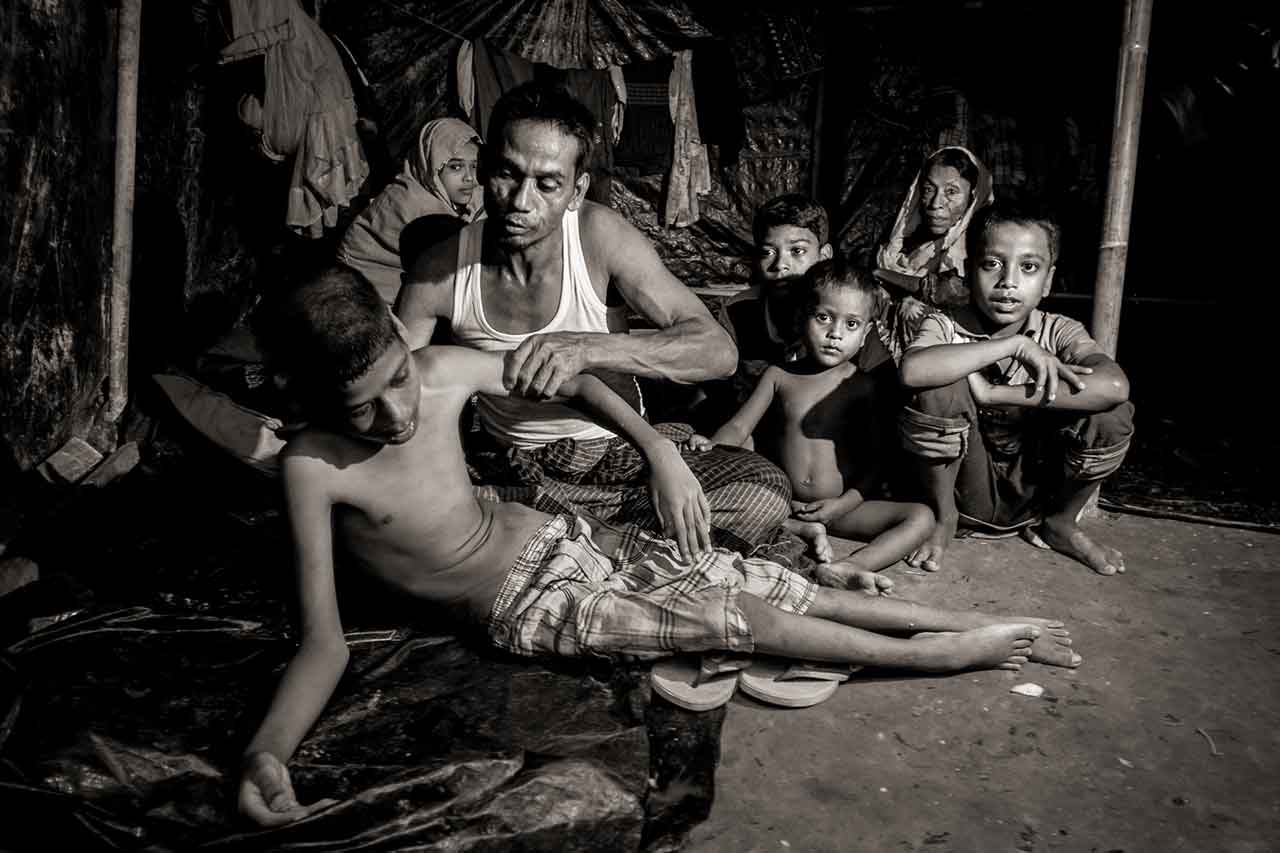
Rohingya refugee Enamullah Zolal cares for his 15-year-old son Mohammadhanif who has polio, while his wife prepares dinner; Enamullah's 18-year-old son was shot in the head by the Myanmar army so the family escaped and built a shelter in Noyapara Camp in Teknaf Upazila, Bangladesh. Photo taken on Oct. 3, 2017.
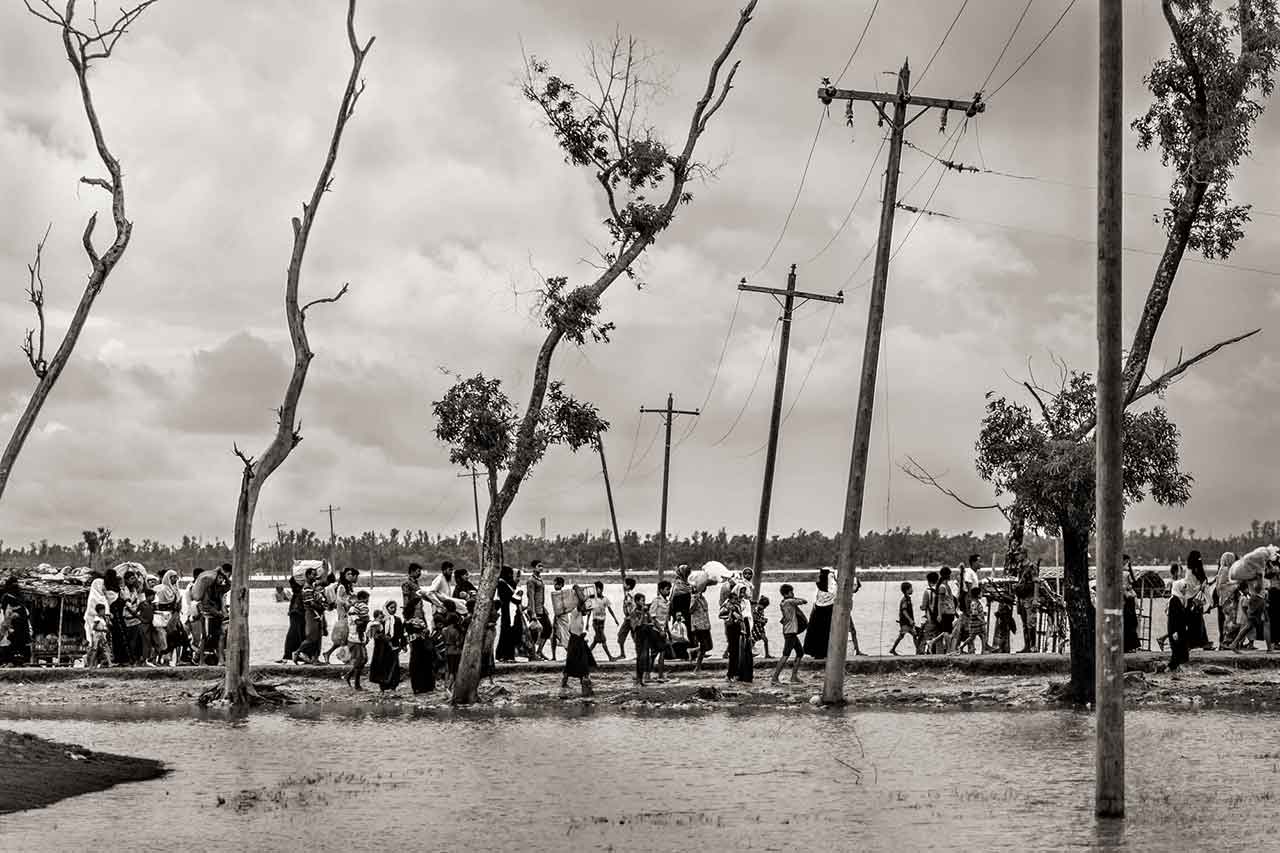
Hundreds of Rohingya refugees flee the violence in Myanmar to Bangladeshi shores on Oct. 7, 2017.
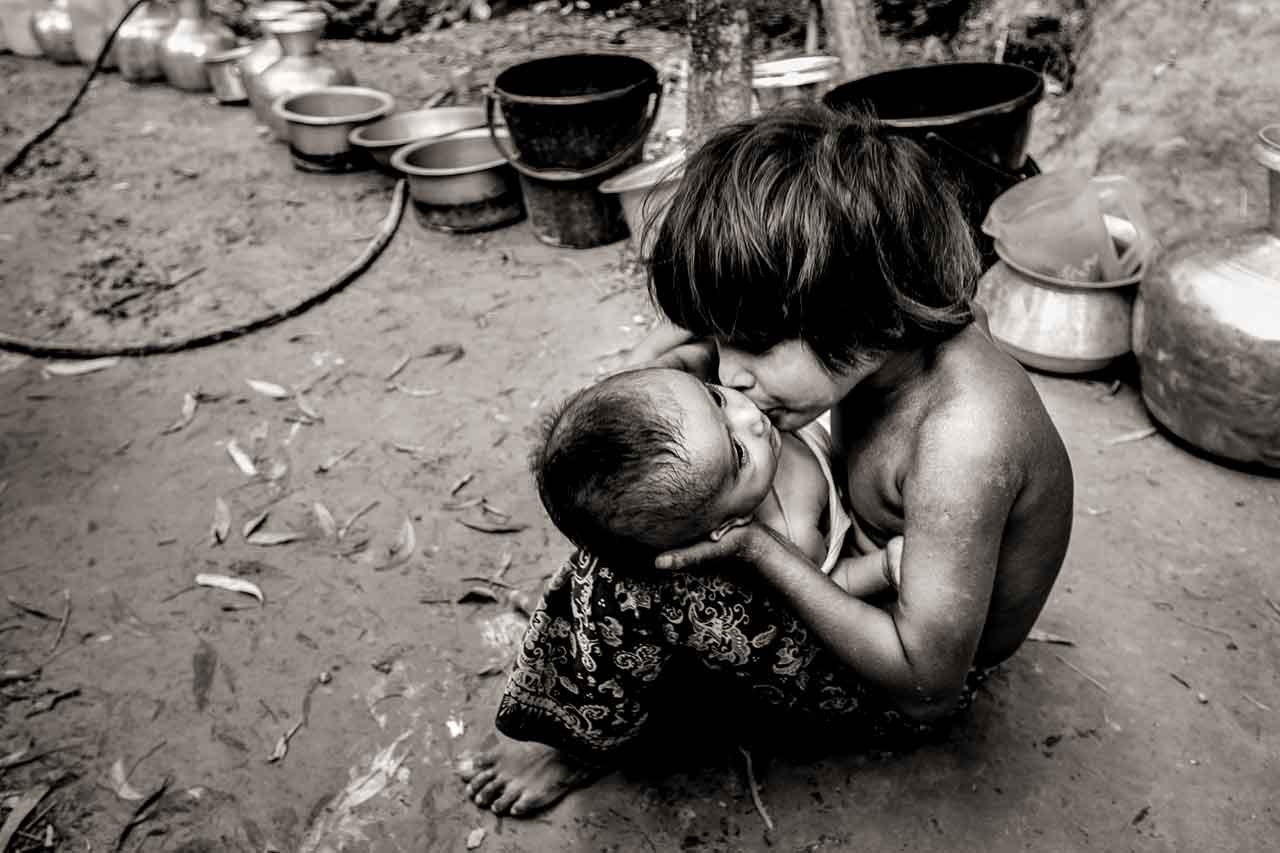
Rohingya refugee Umairhair Hasumiya, 7, plays with her 3-month-old brother Rihas as they wait for water in the Musoni Noyapara refugee camp in Bangladesh on Oct. 9, 2017. Fears of an epidemic grow as cholera is endemic in Bangladesh.
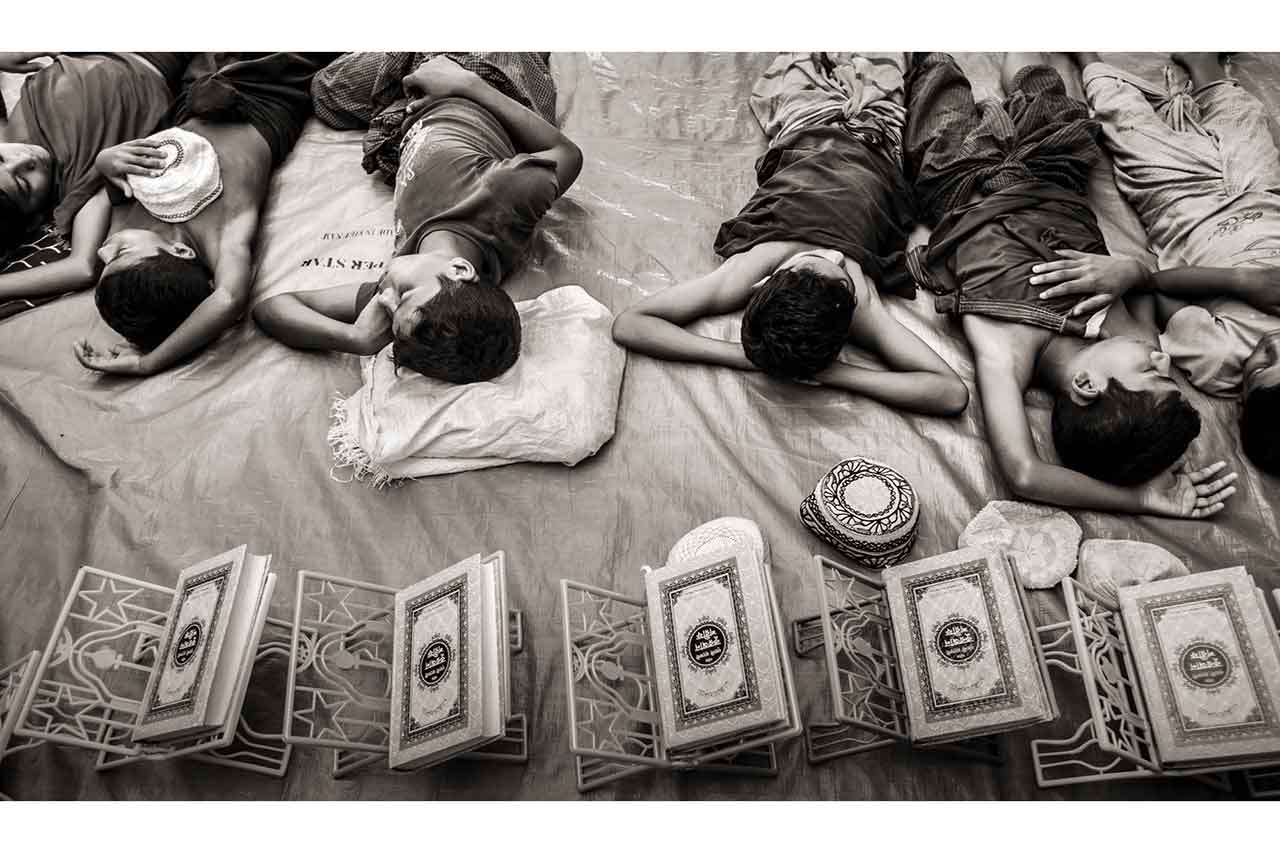
Rohingya refugee boys nap midday between Koran lessons at a madrassa in Kutupalong Refugee Camp in Ukhia district, Bangladesh, Oct. 11, 2017.
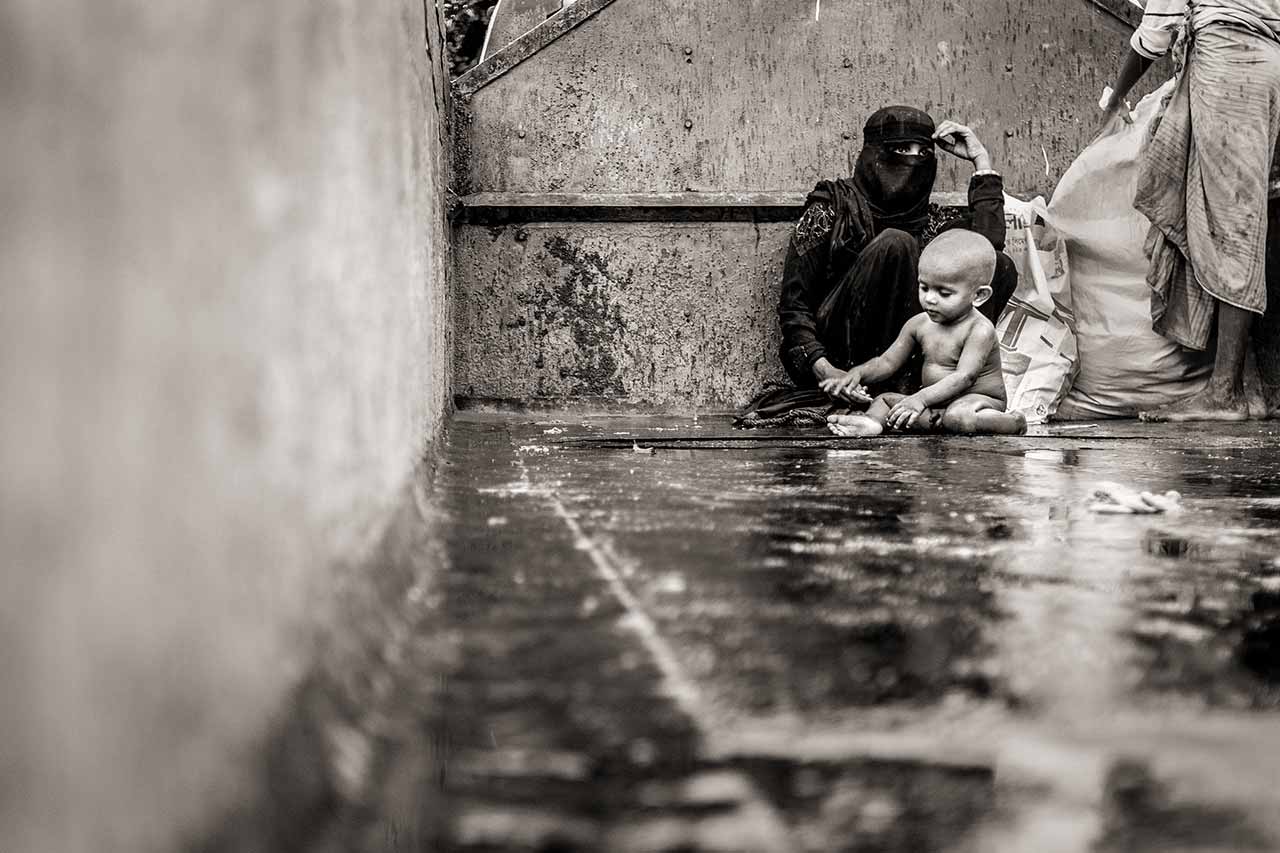
Tired, hungry and scared, Rohingya refugees from Myanmar board a truck at the Sabrang army camp to be transported to refugee camps upon safely arriving in Bangladesh on Oct. 7, 2017.
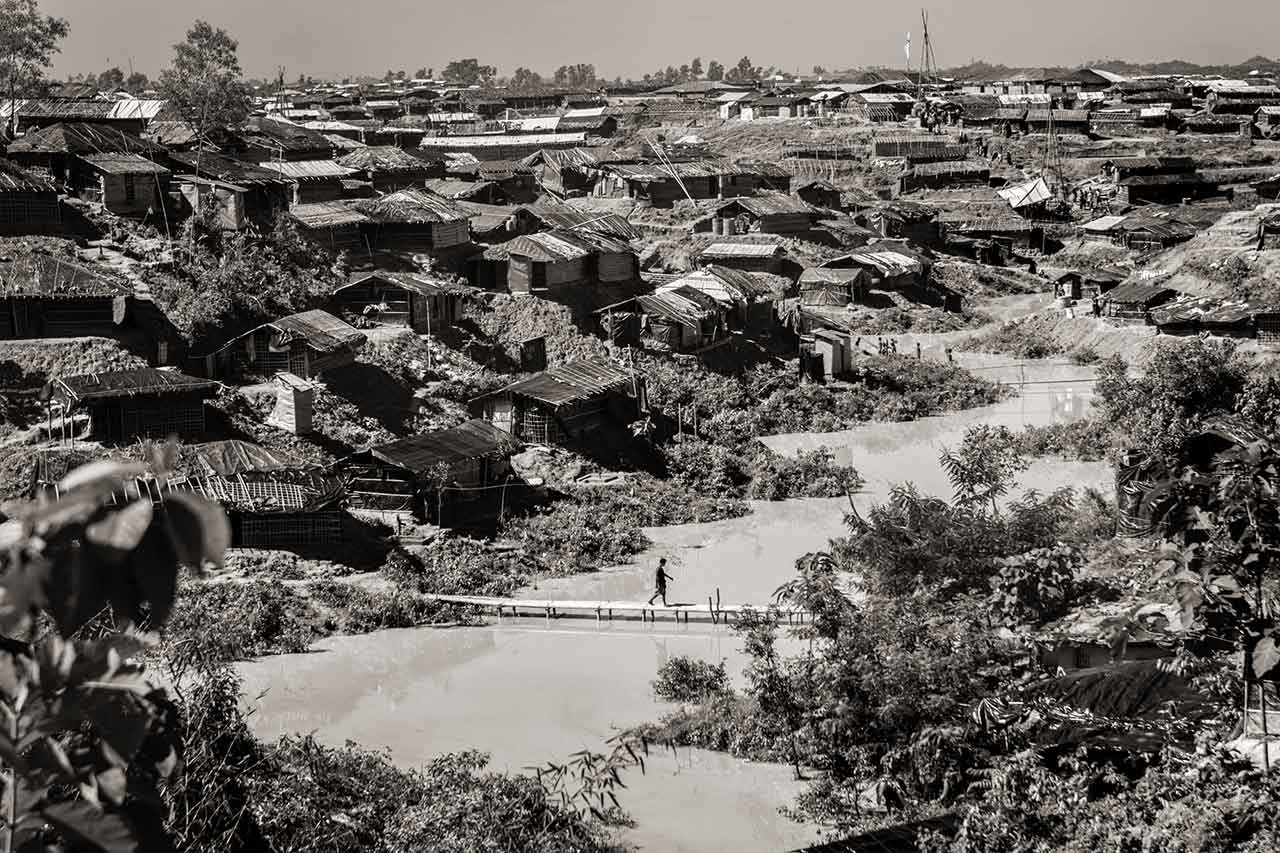
Once lush hills have been stripped of greenery as hundreds of thousands of Rohingya refugees who recently arrived in Bangladesh build shelters of plastic, tarpaulin and bamboo in Kutupalong Refugee Camp in Ukhia District, Oct. 11, 2017. As of September, the camp has over 10,000 shelters on 1.5 square miles, and is growing daily.


